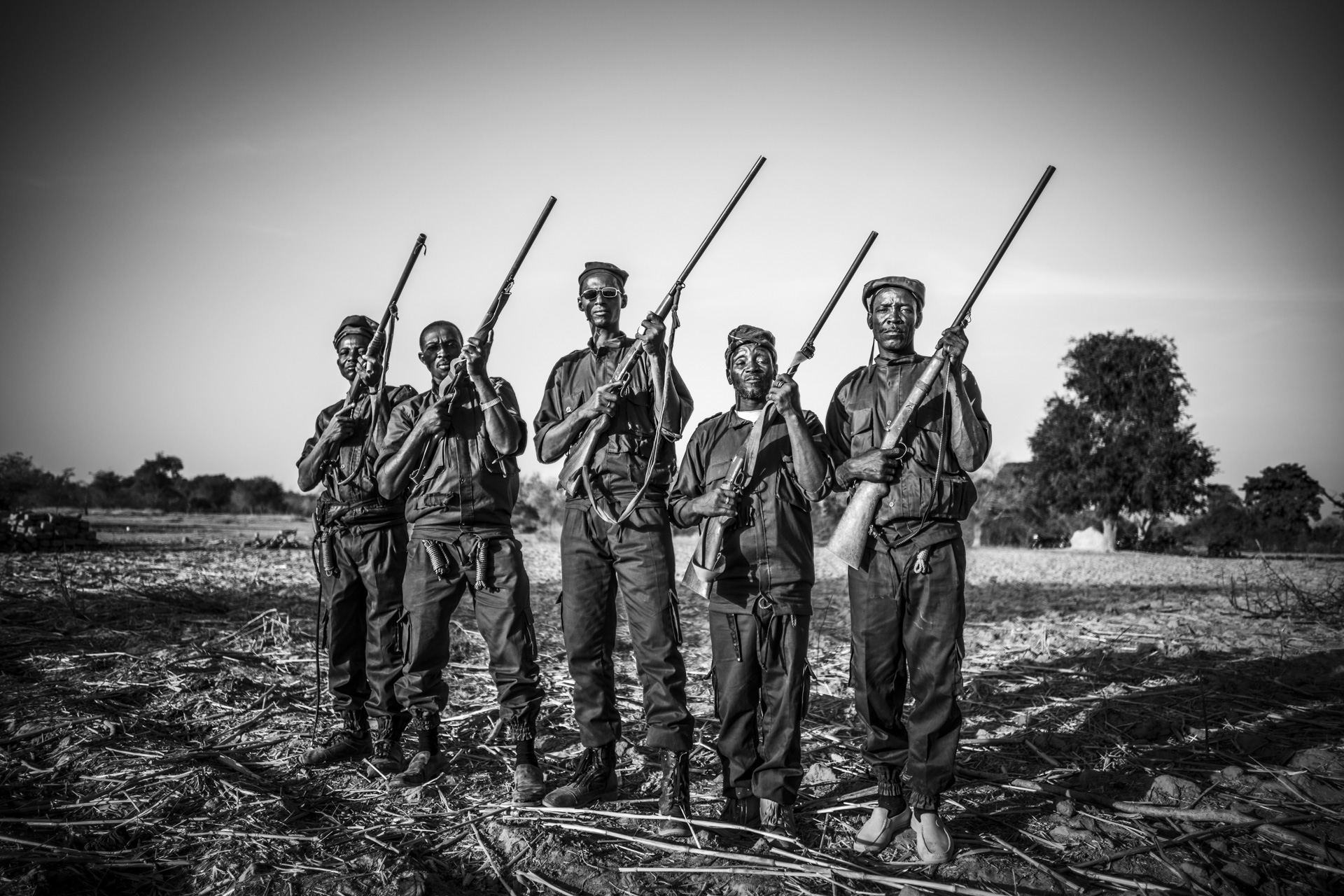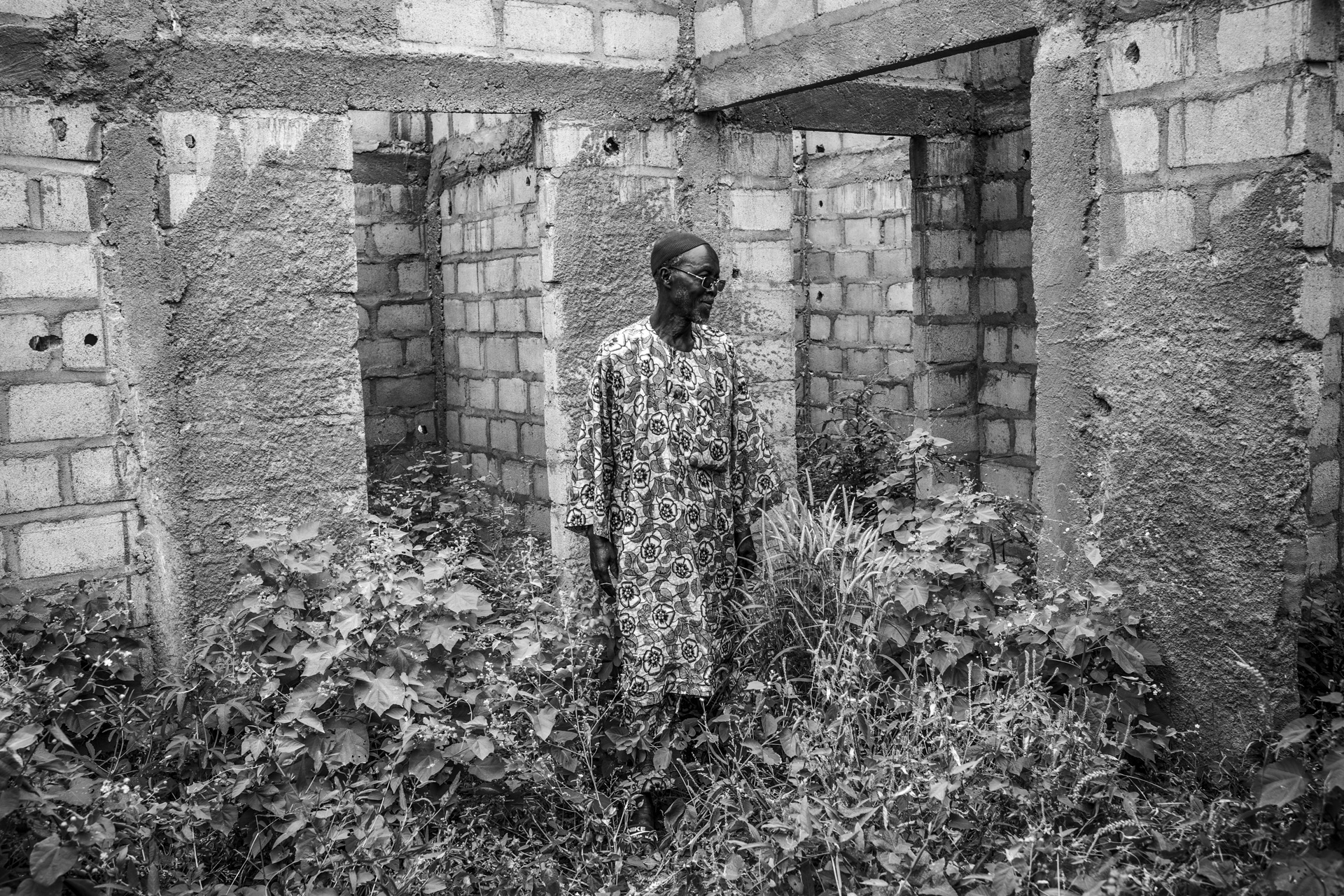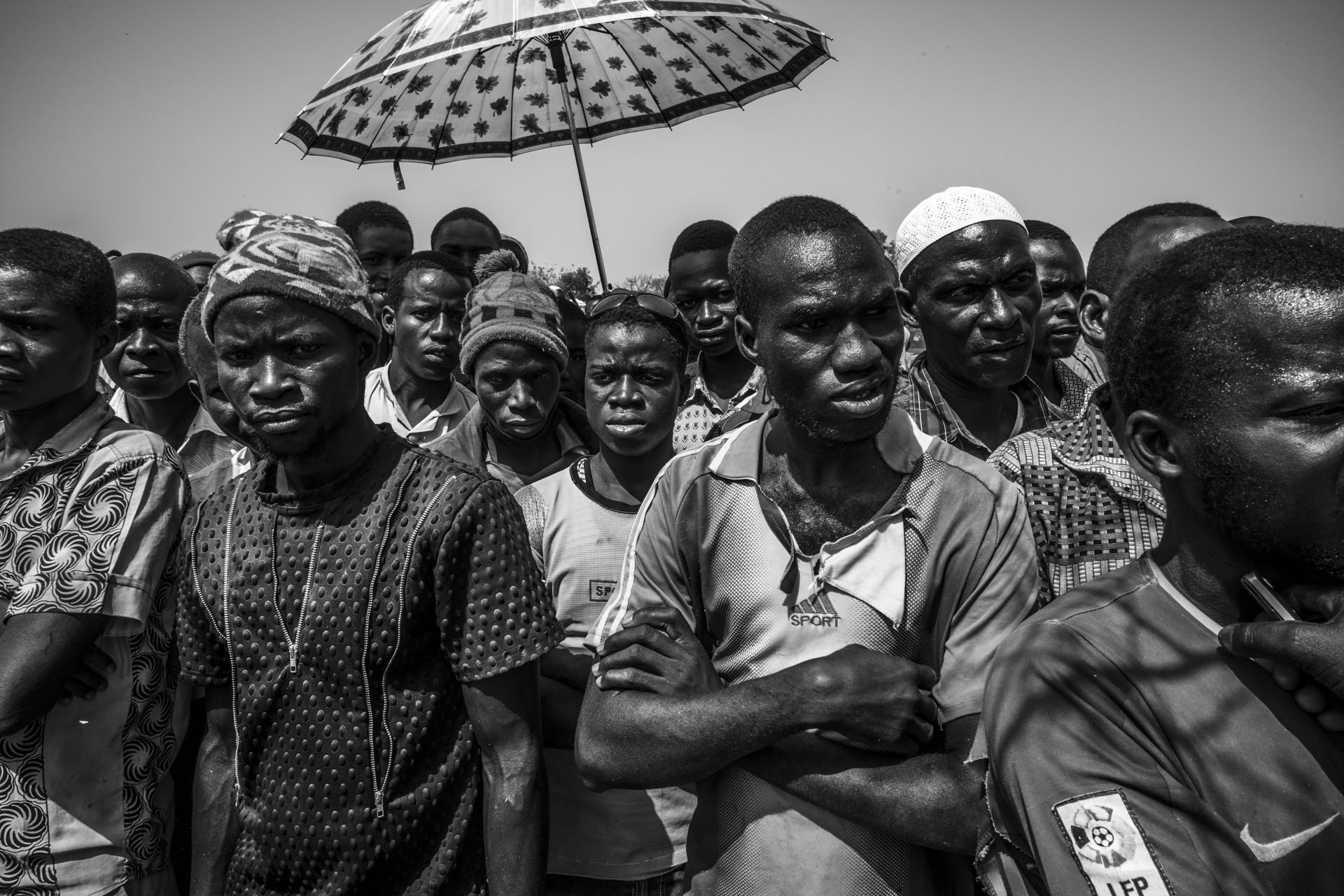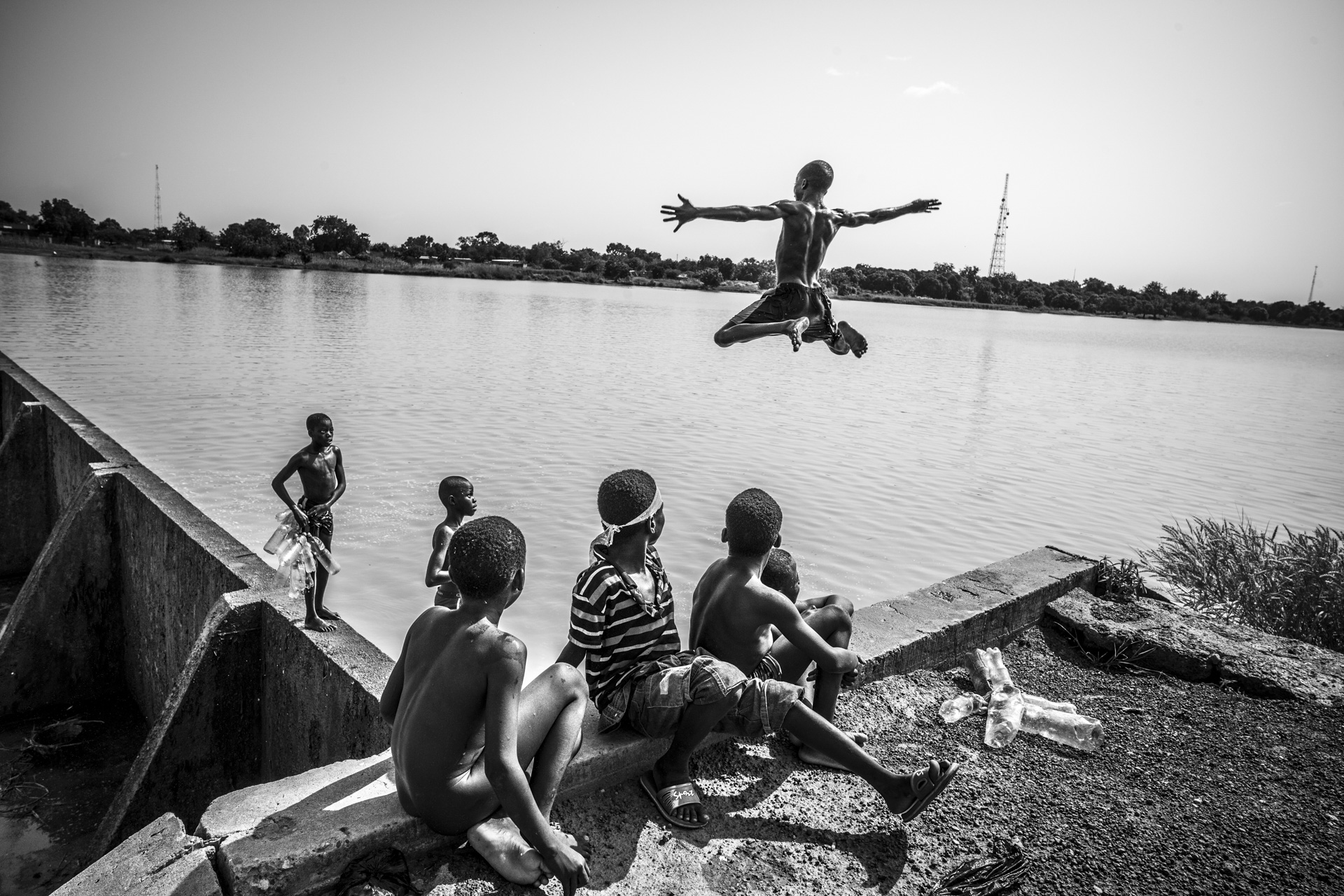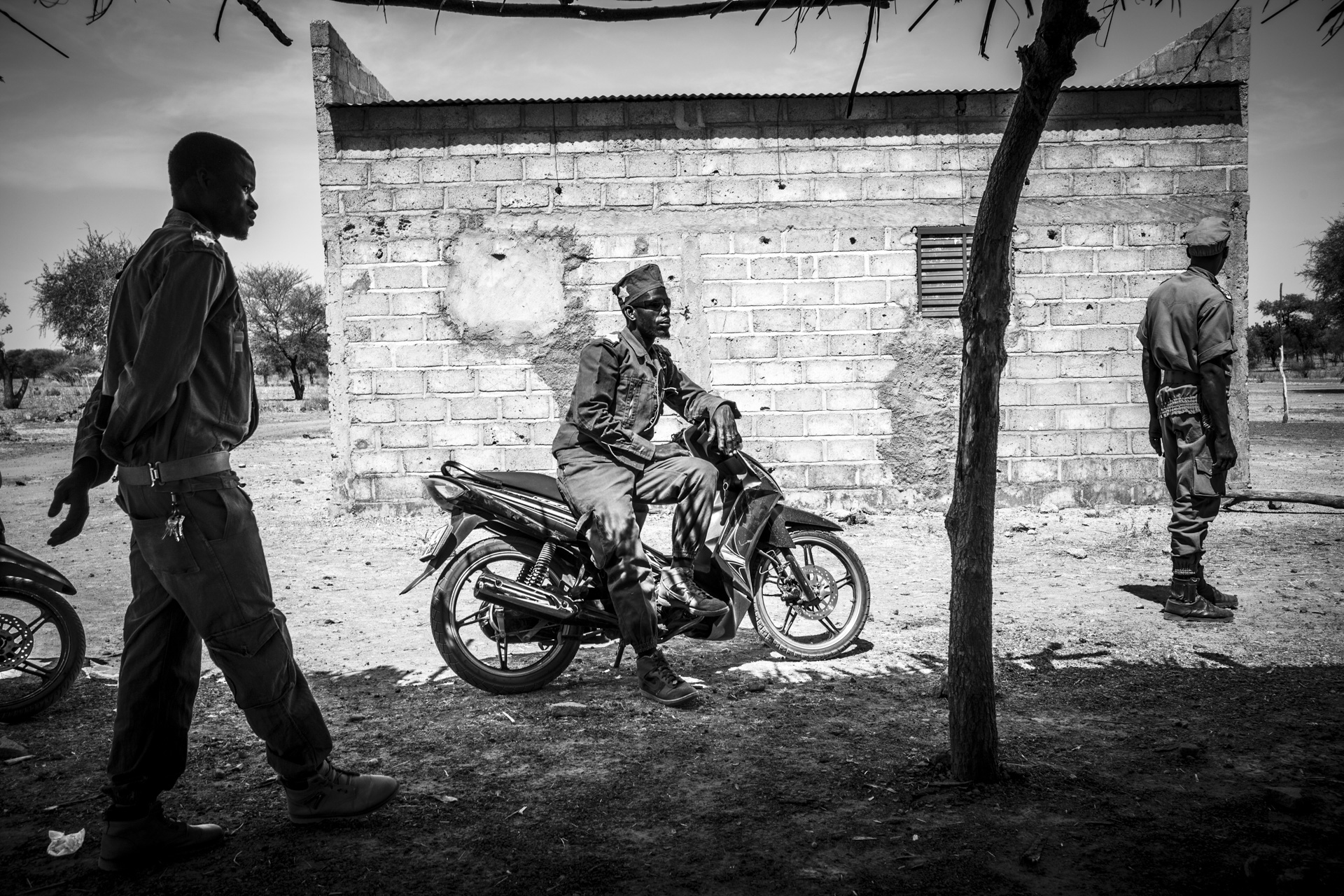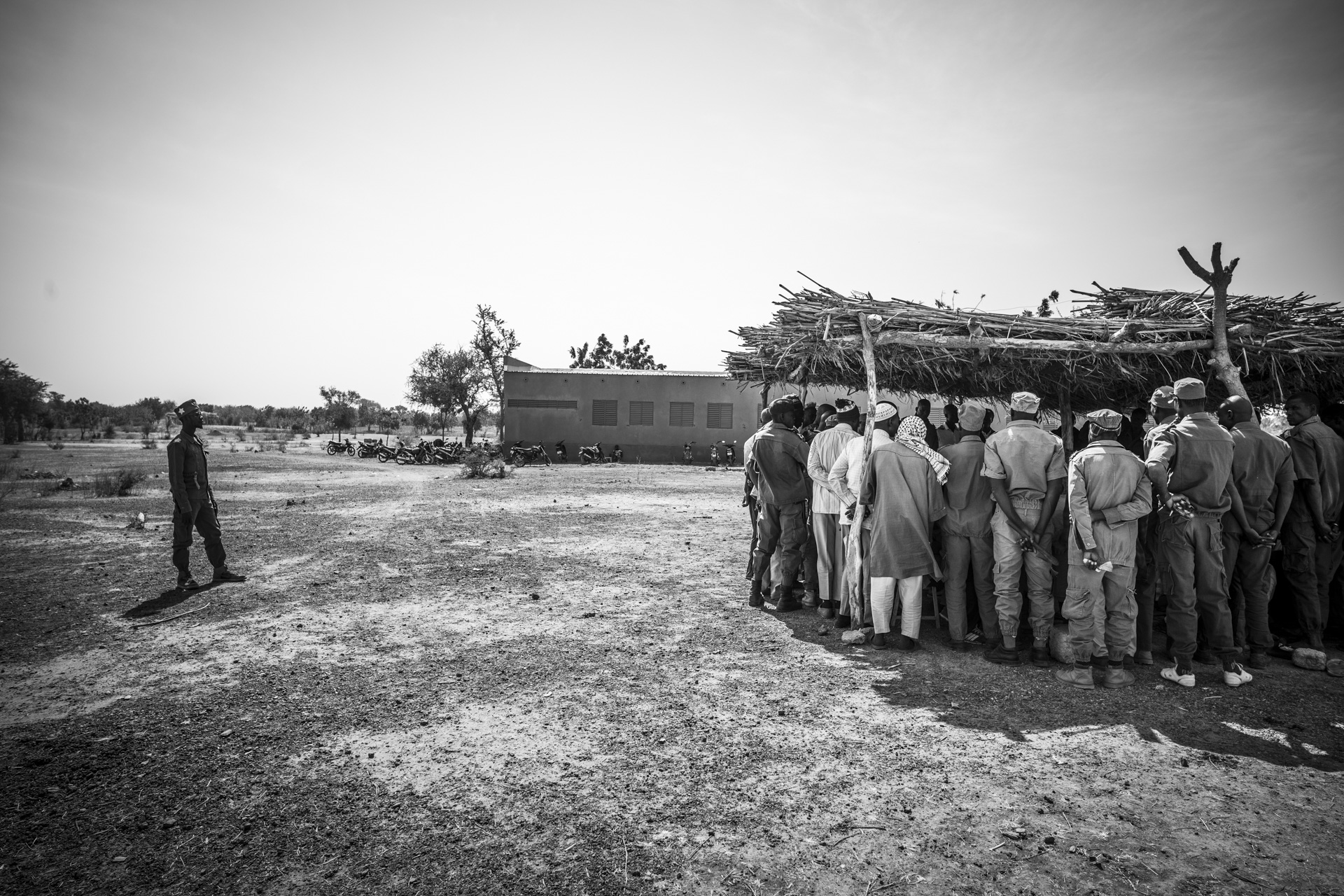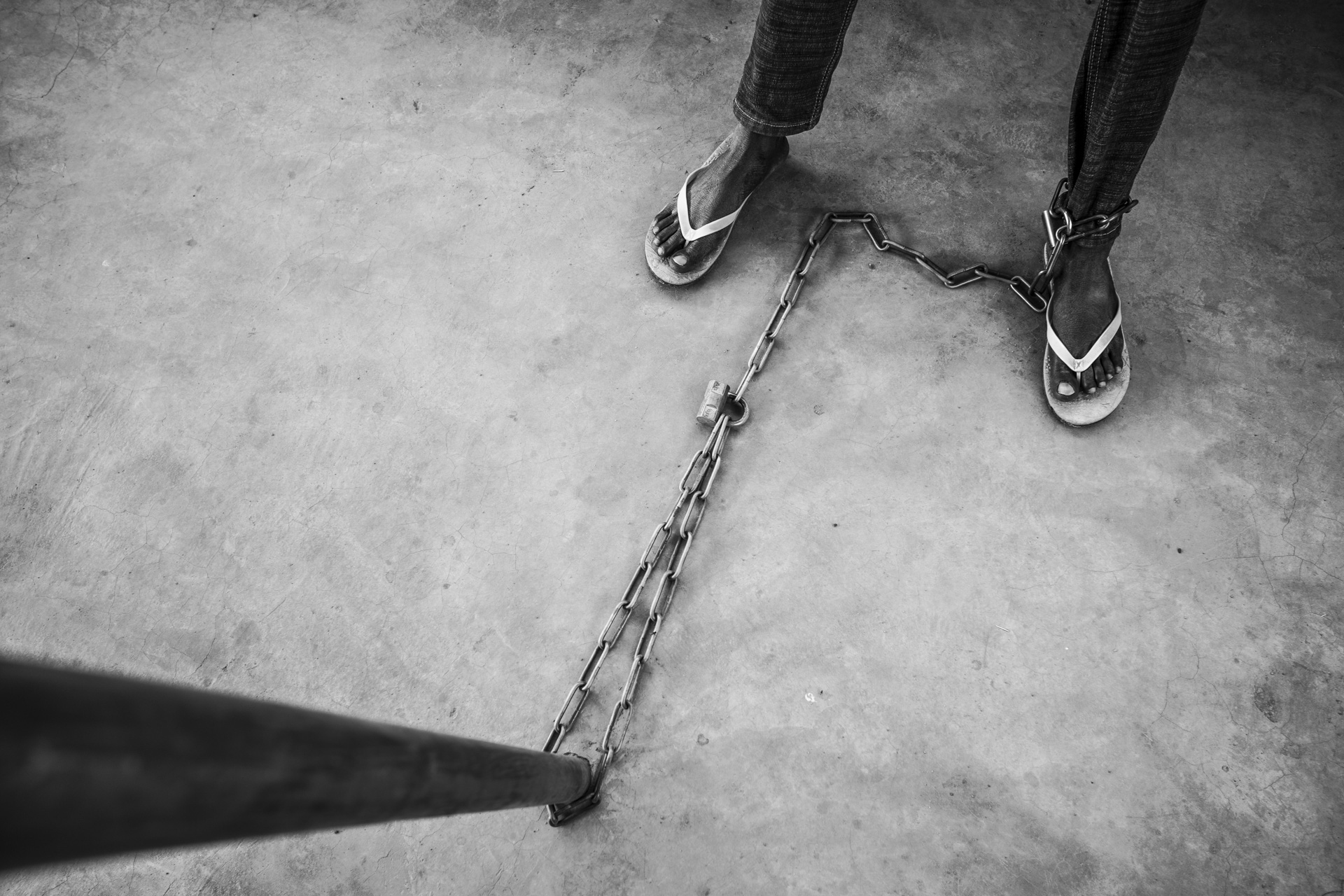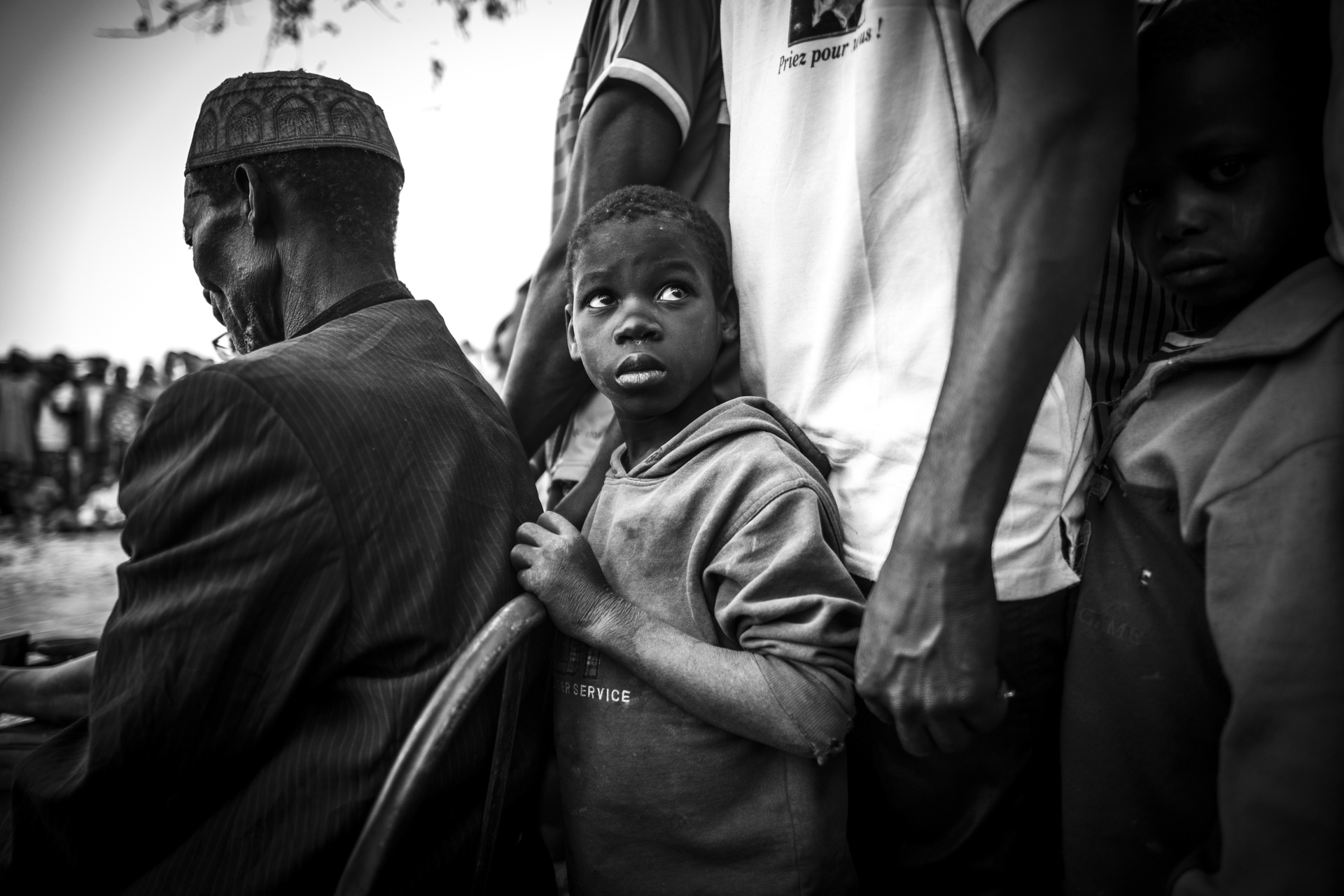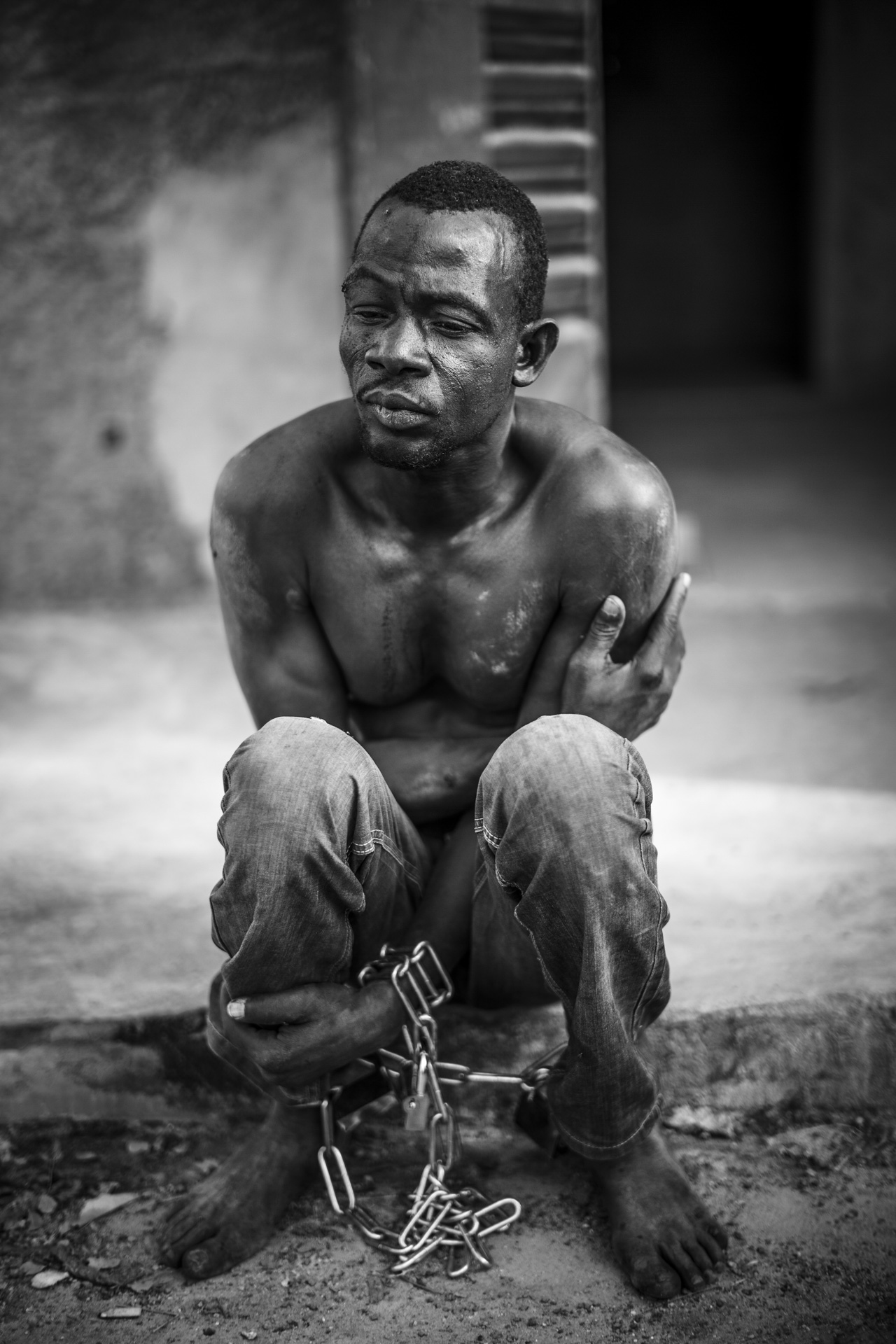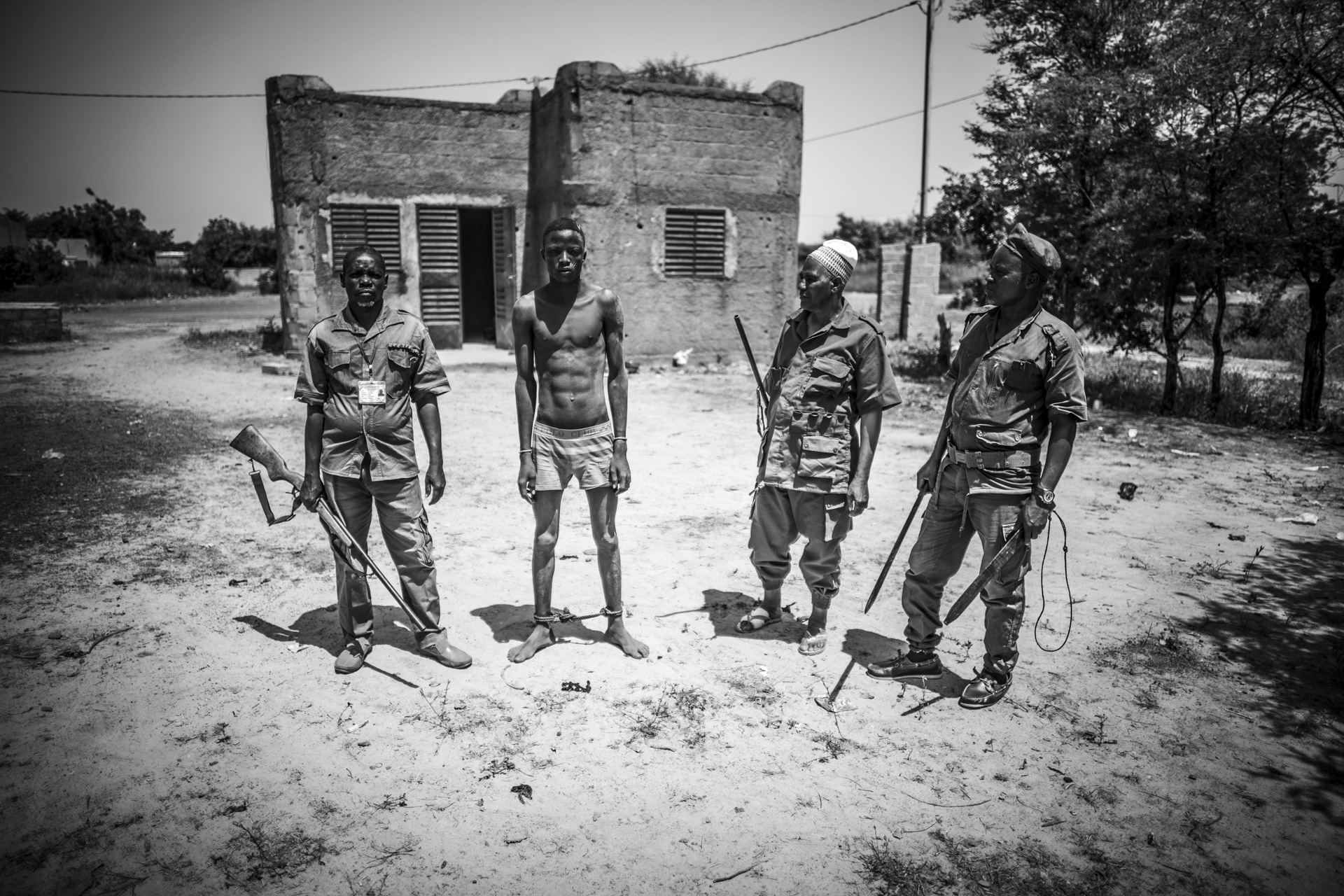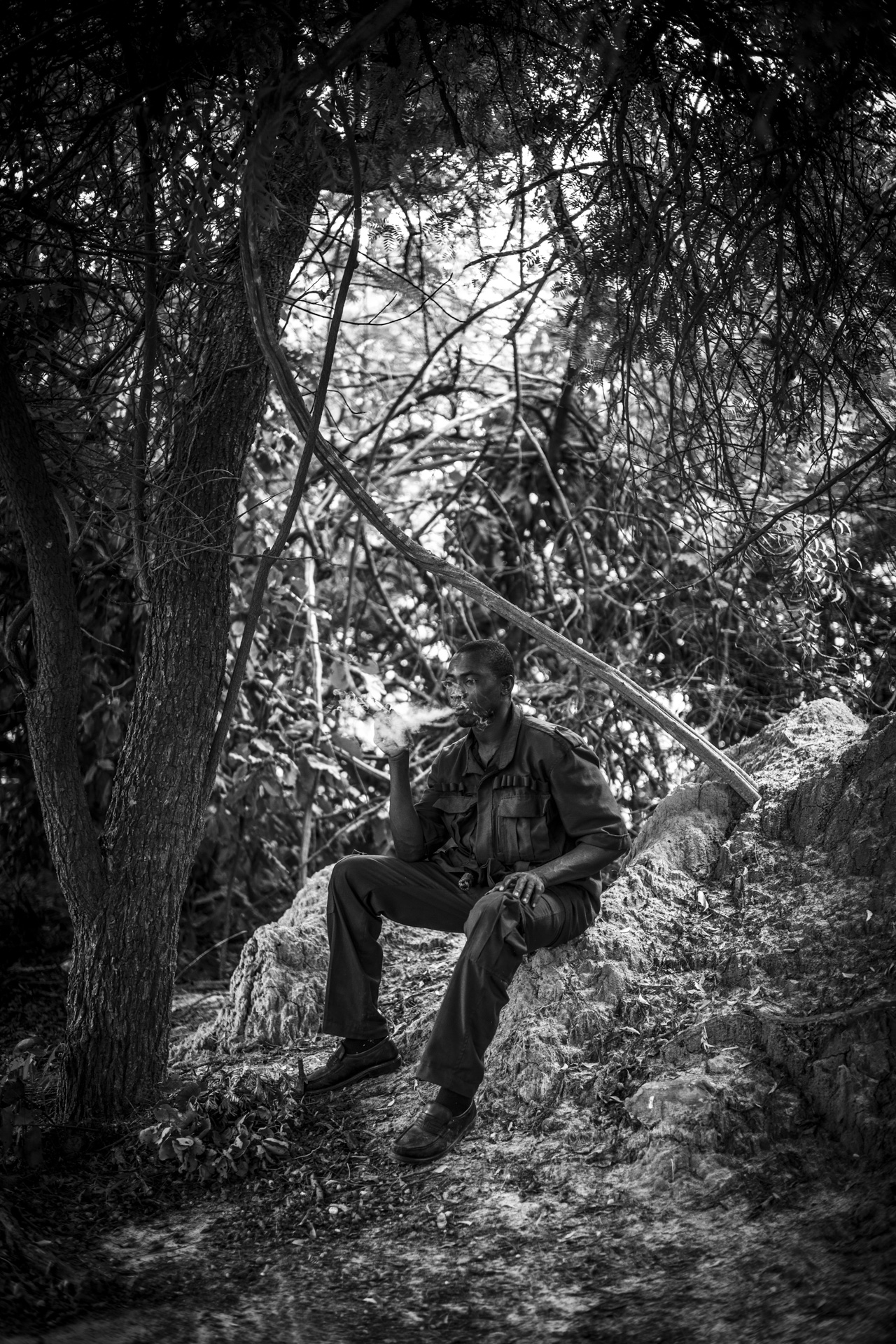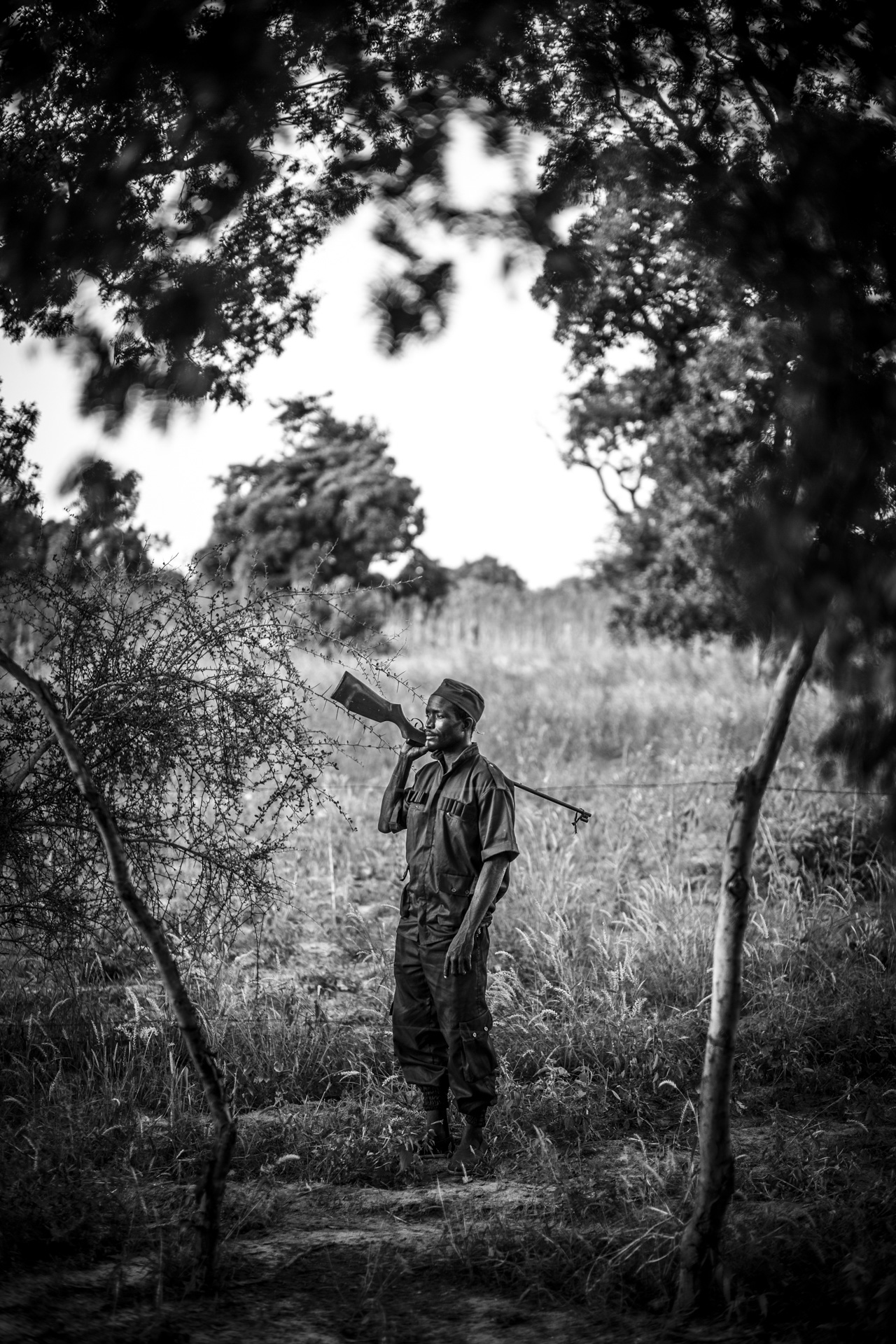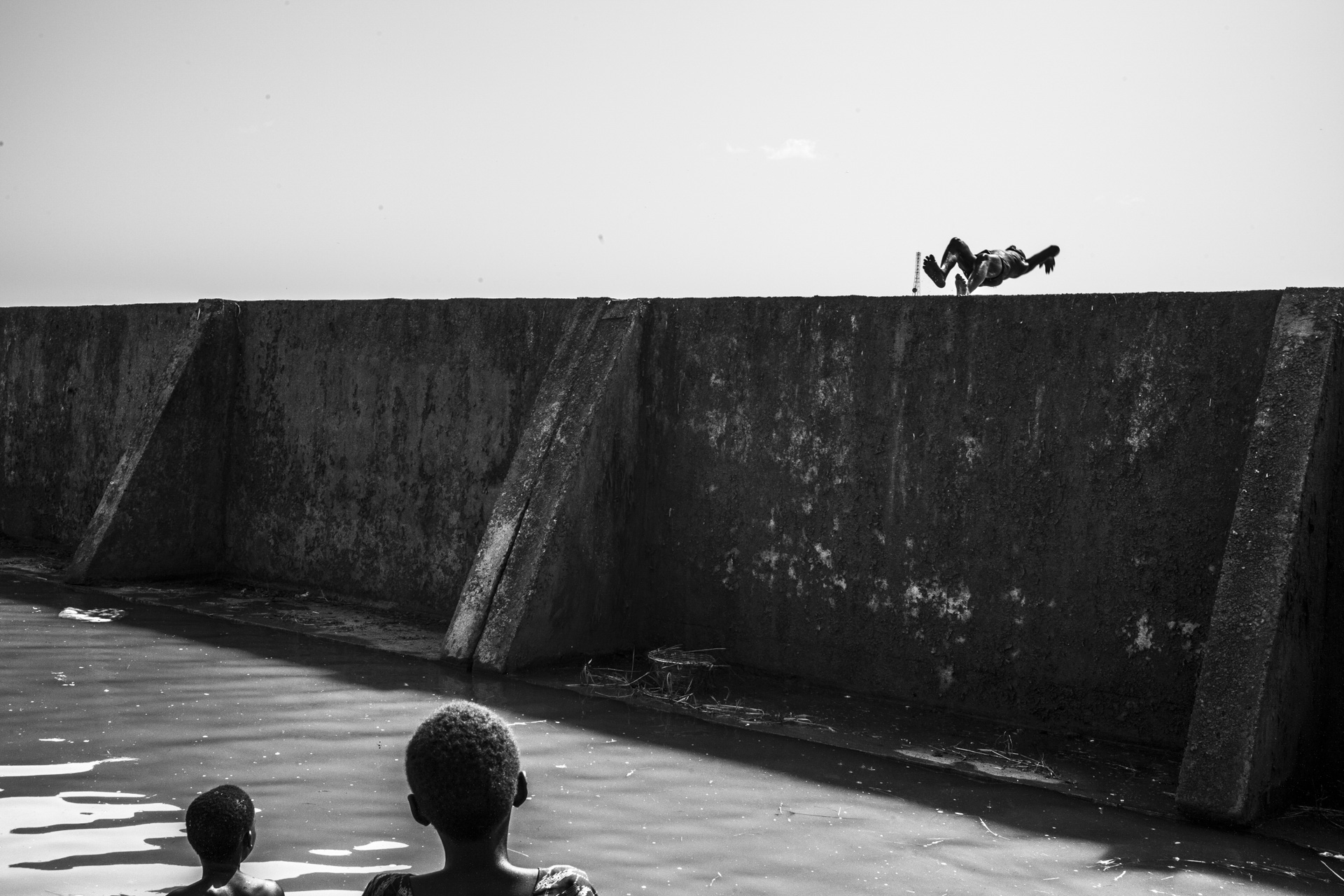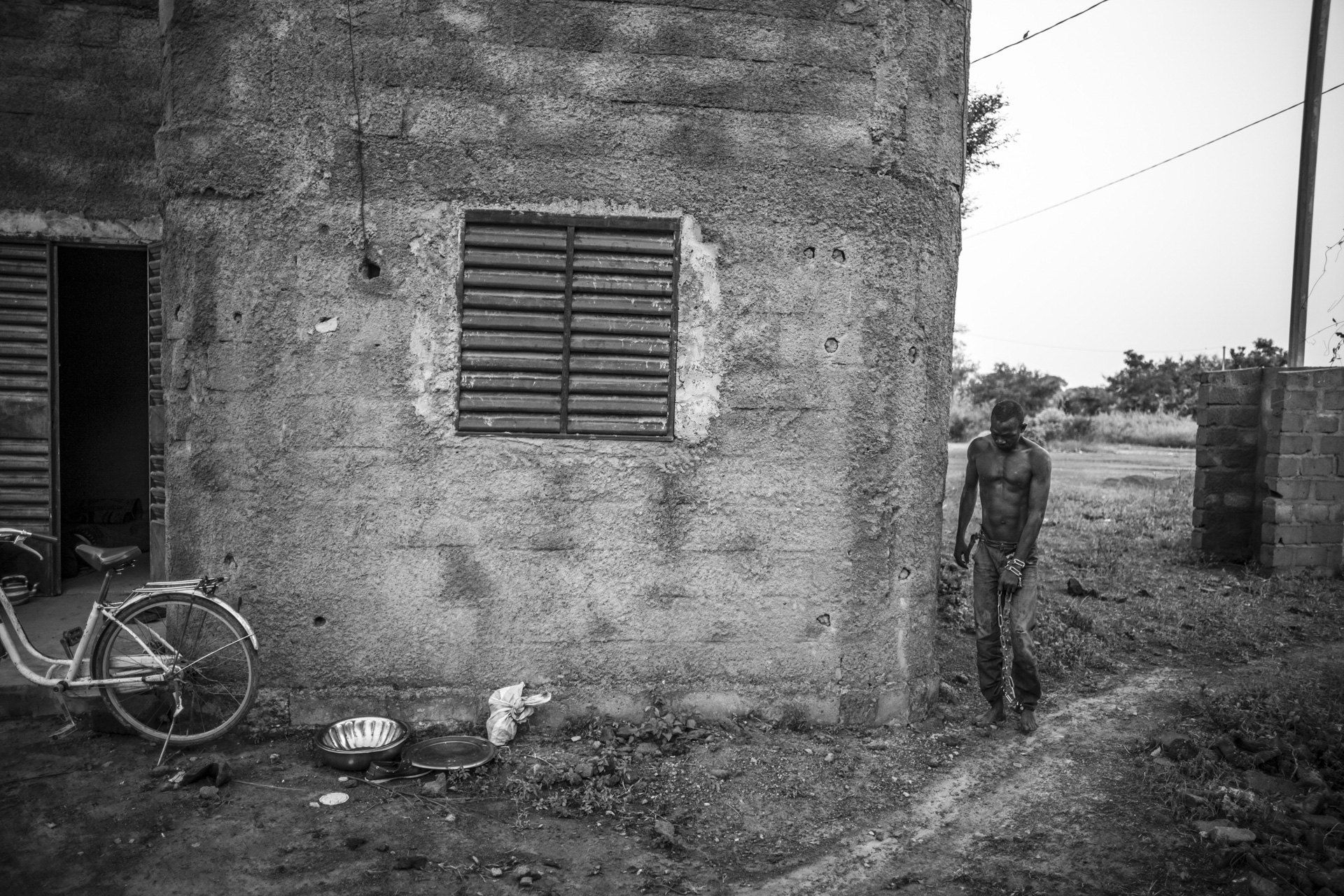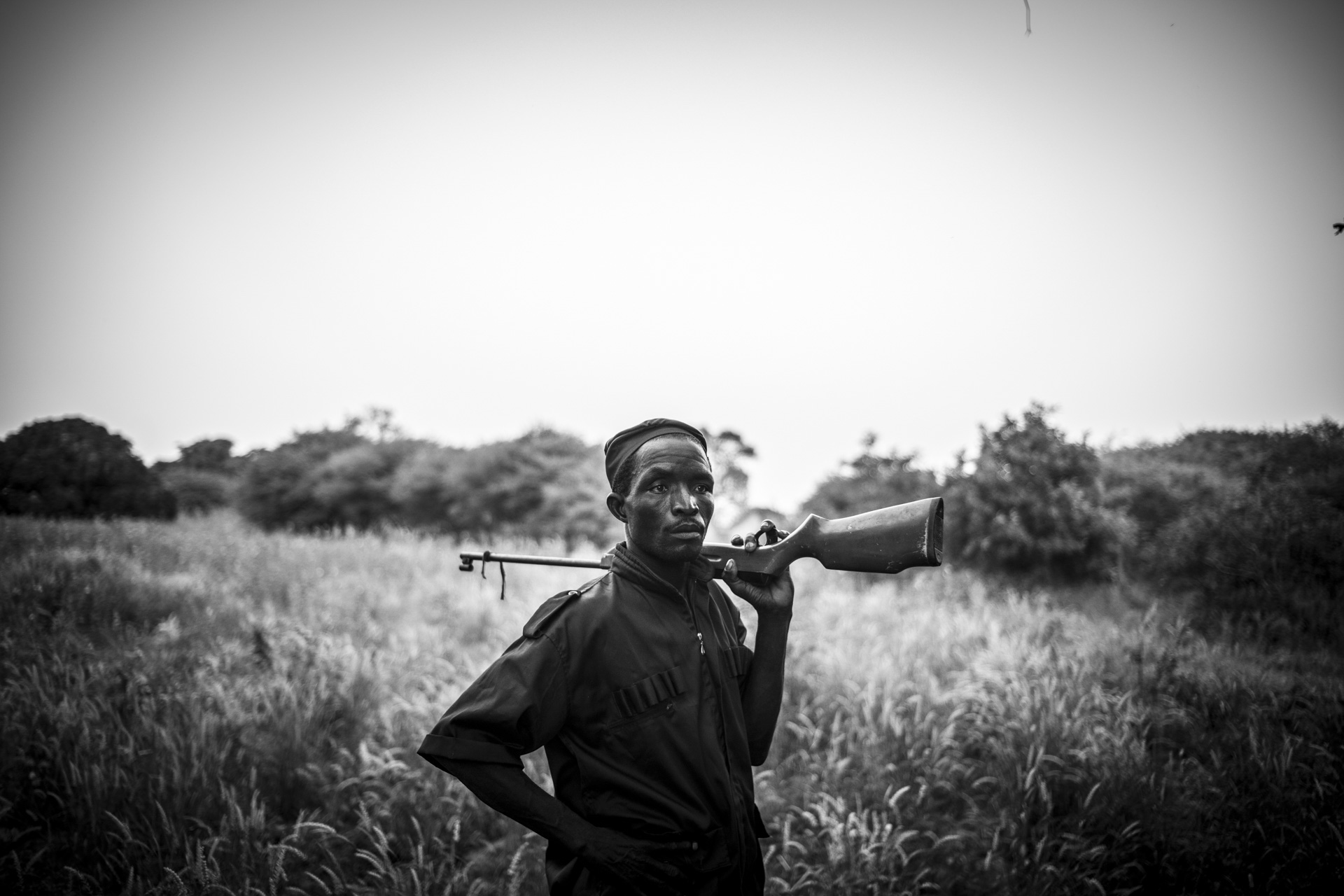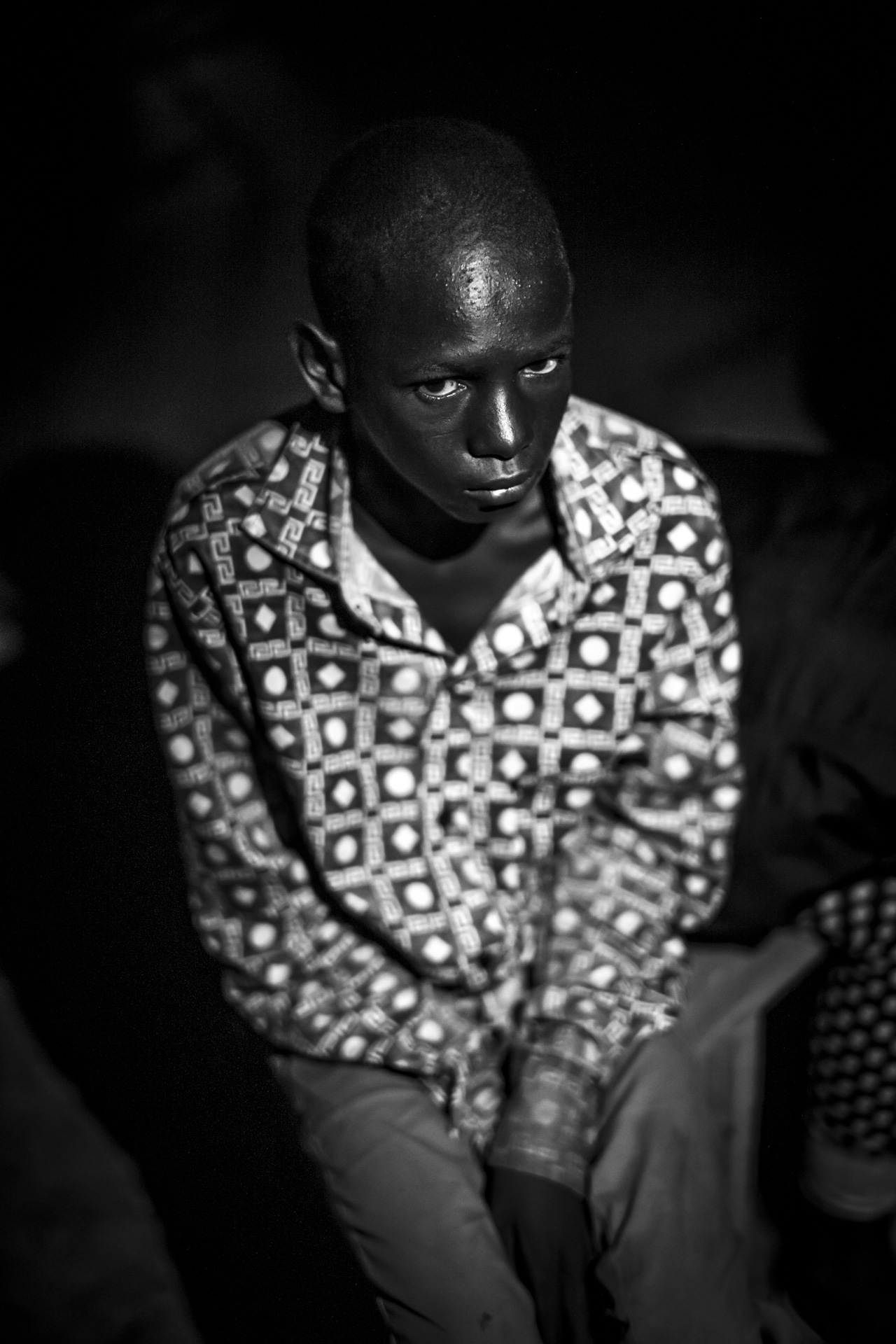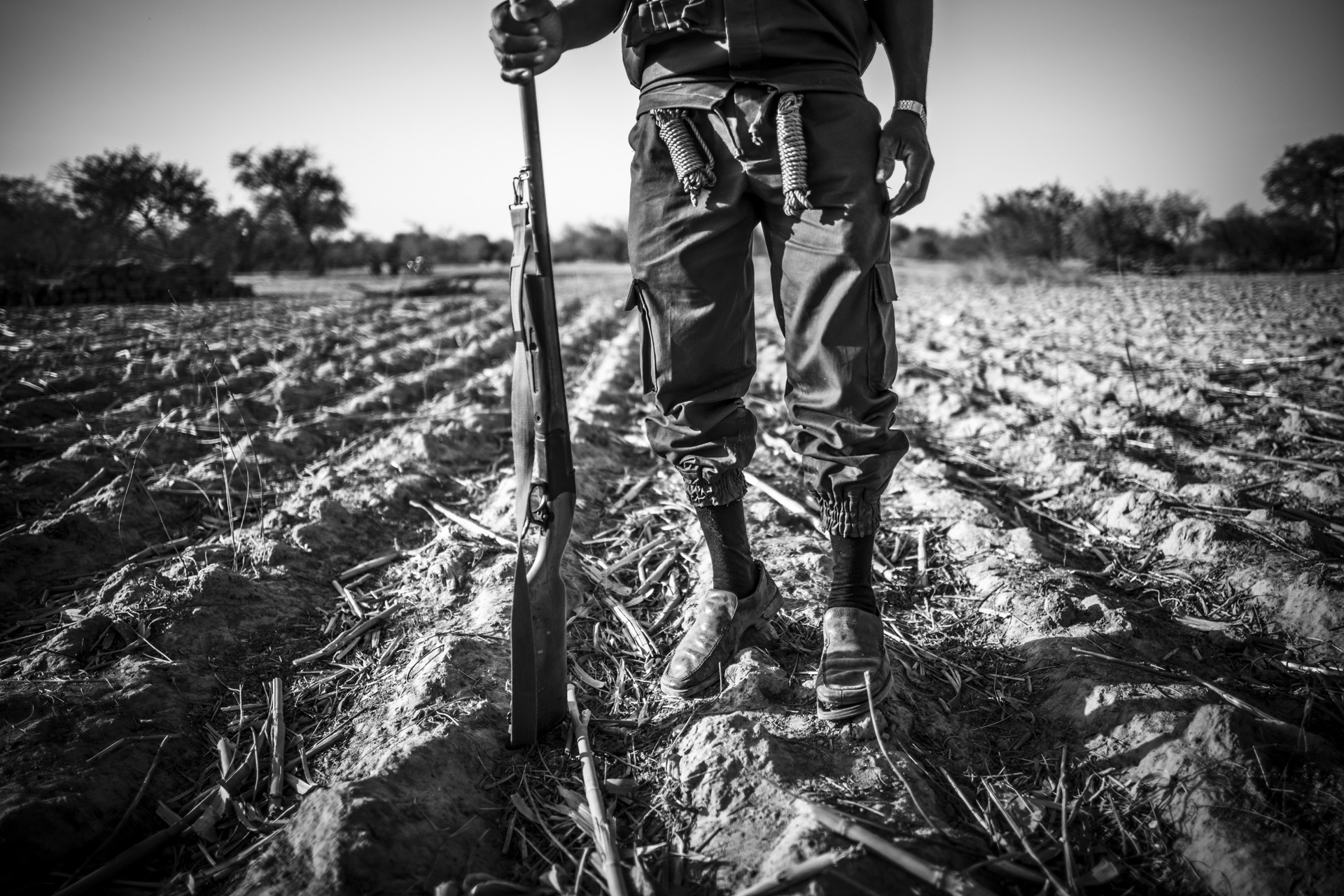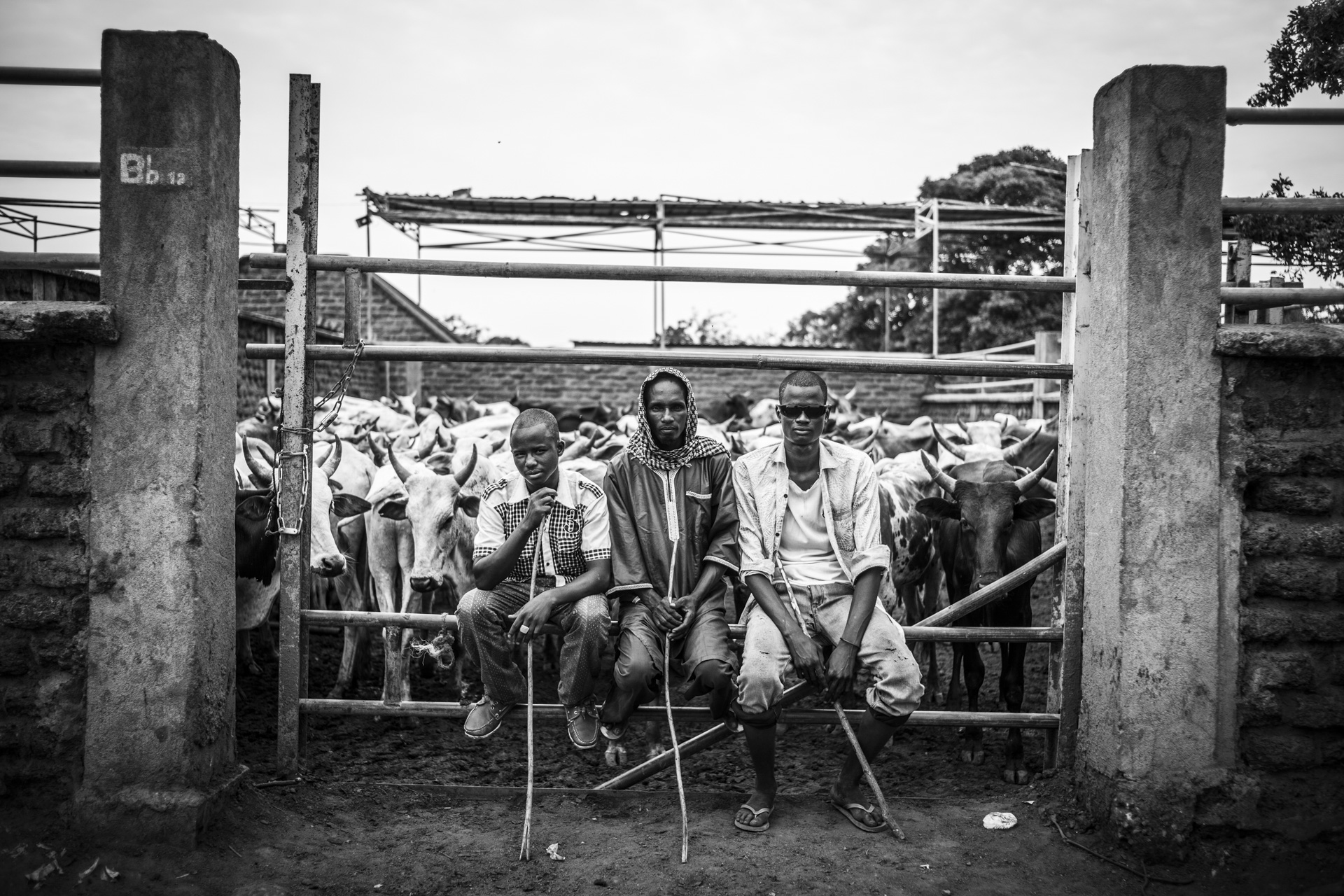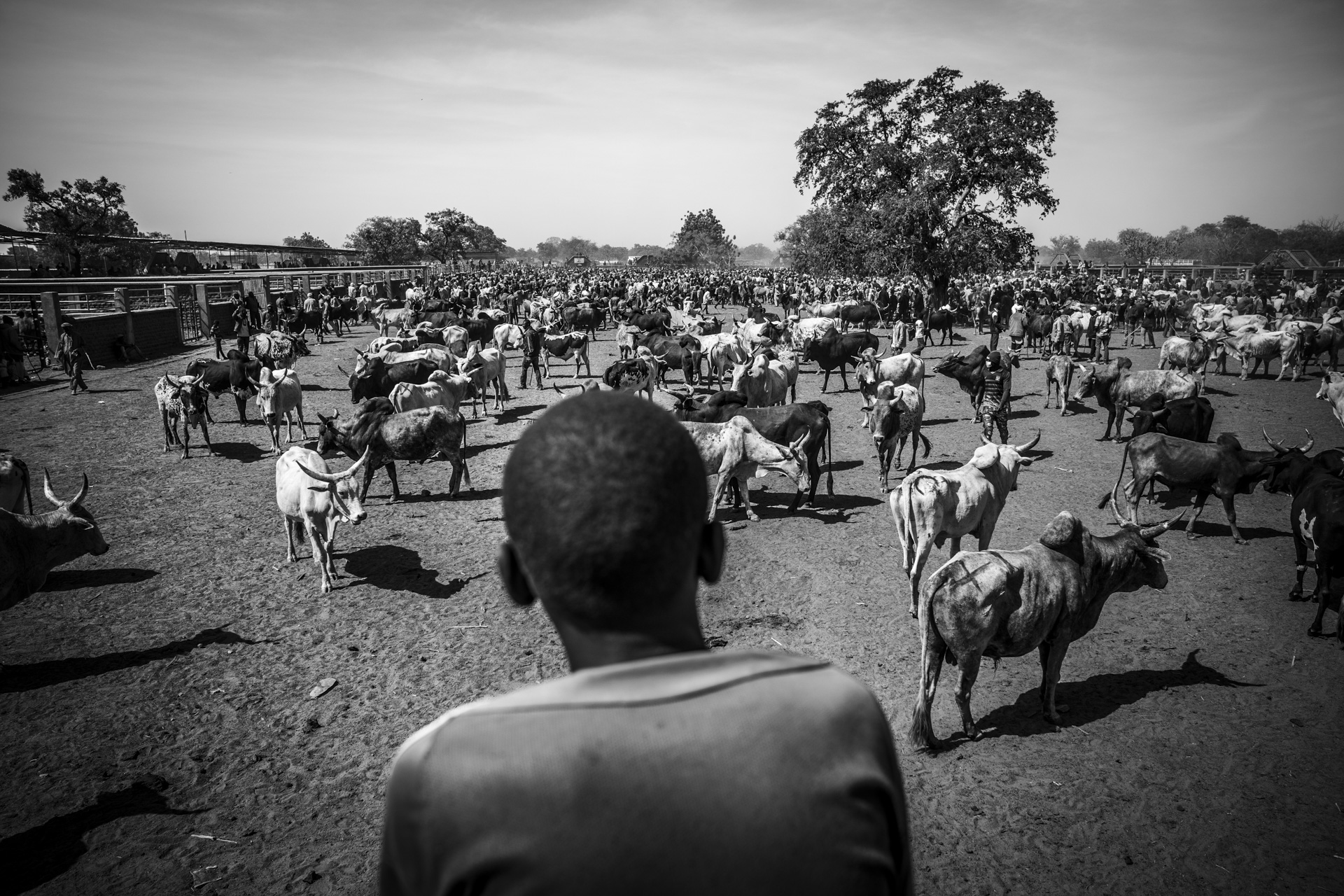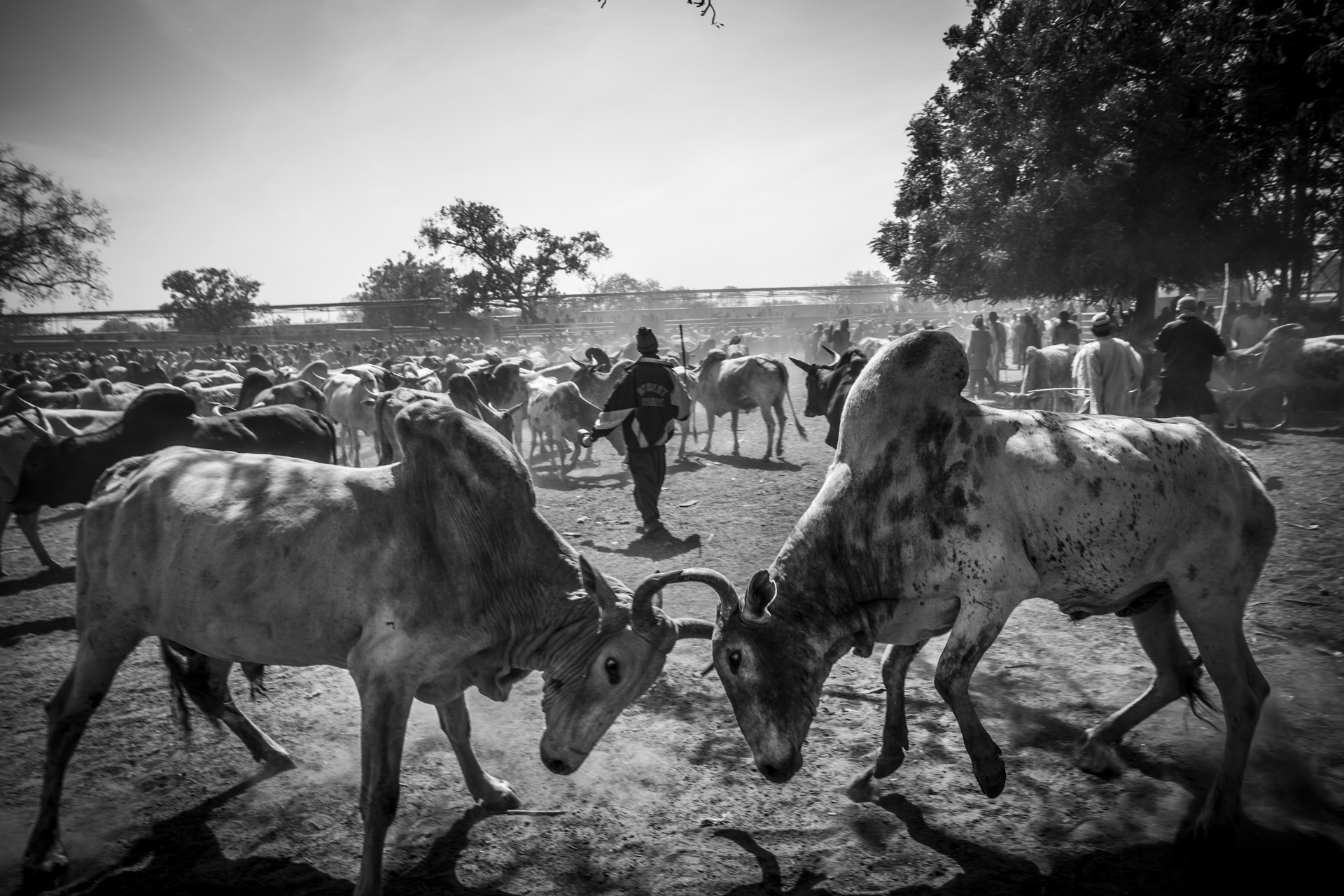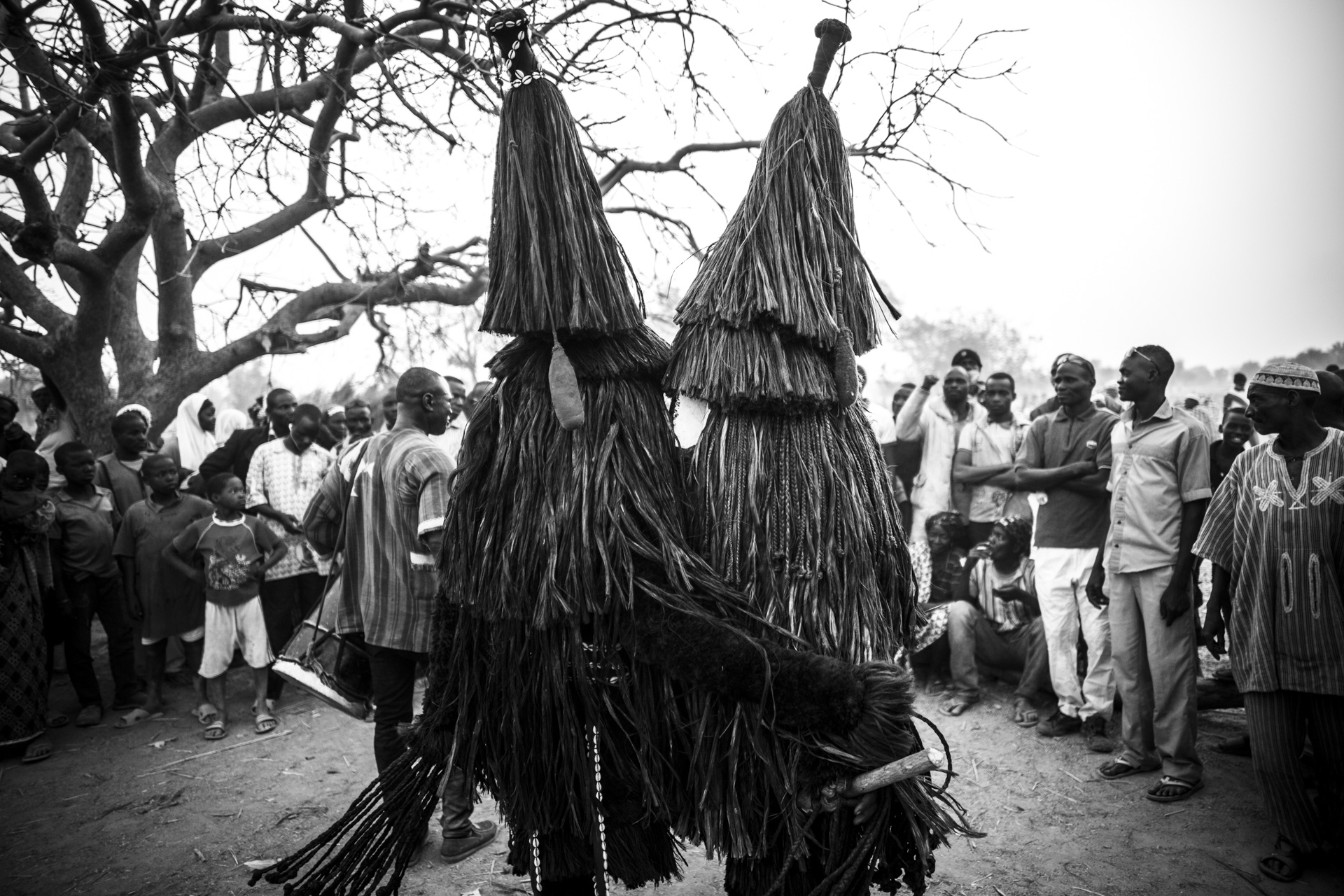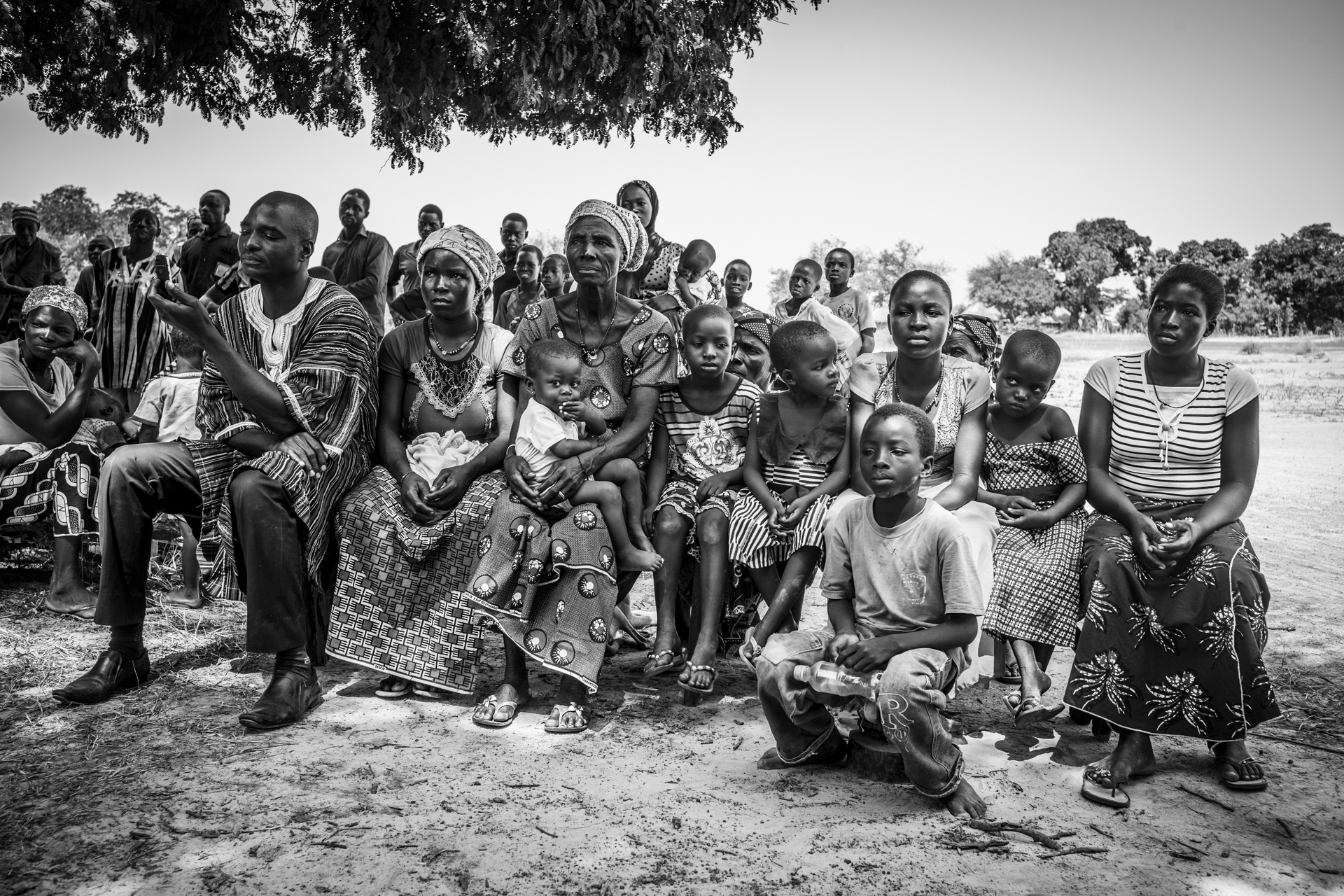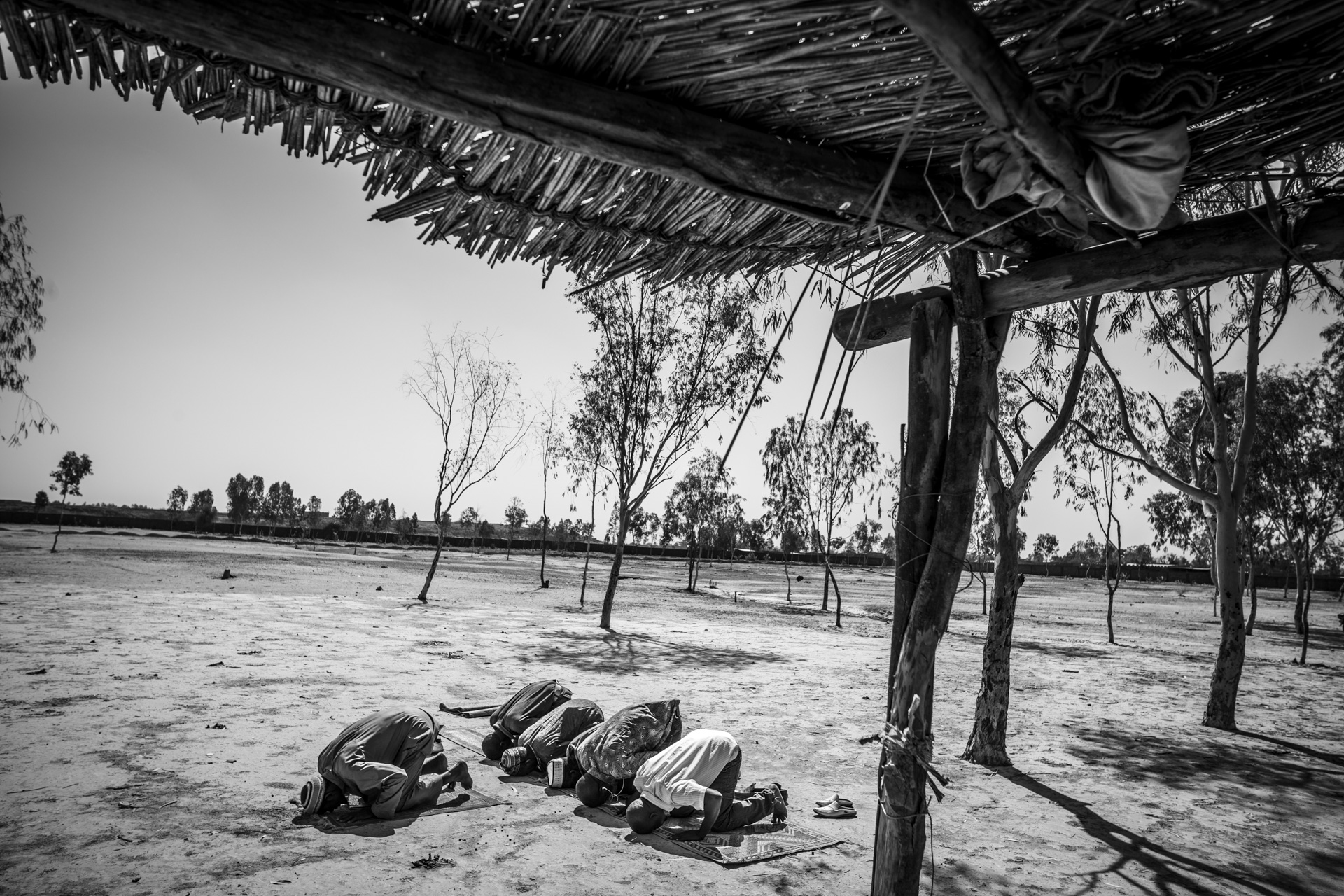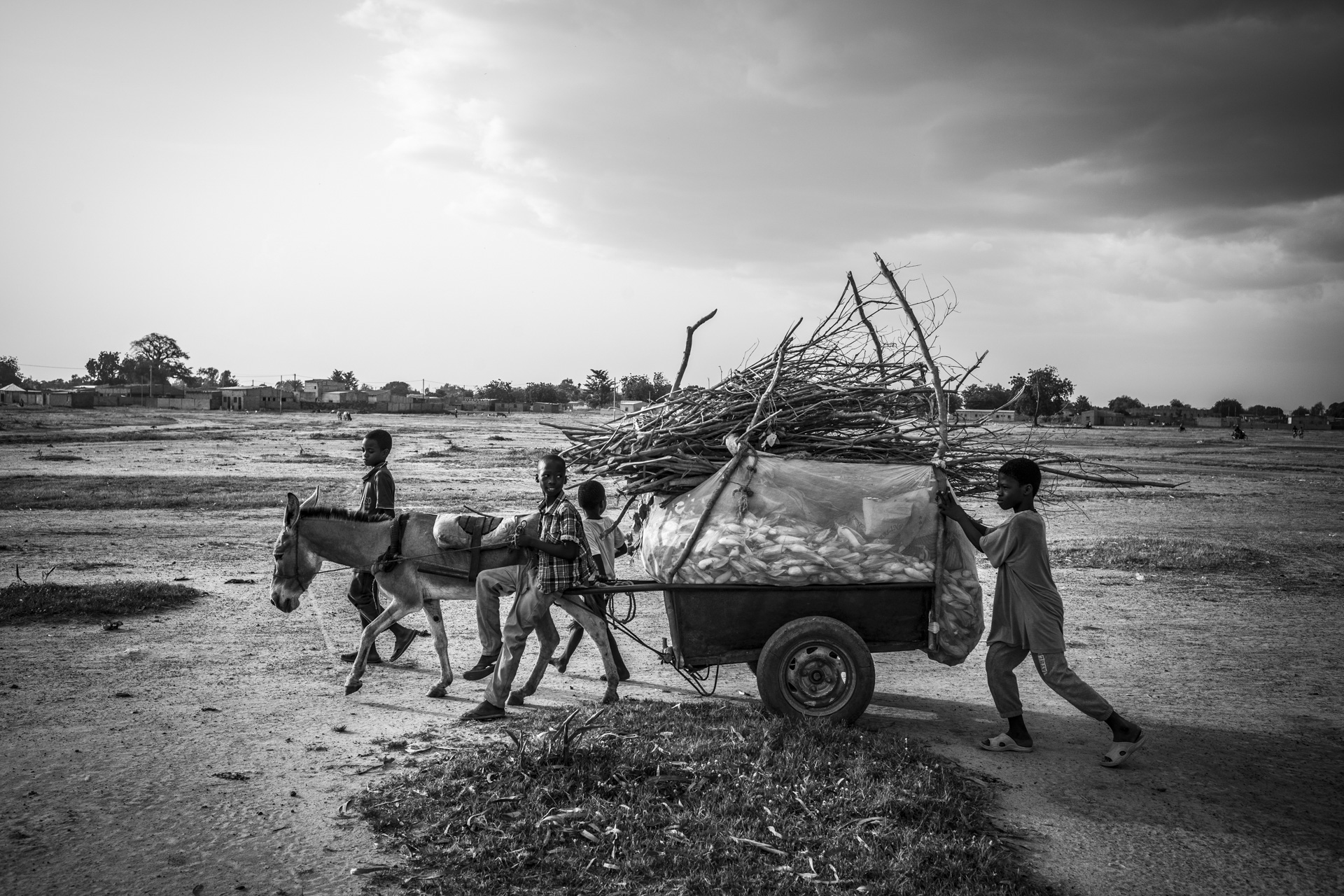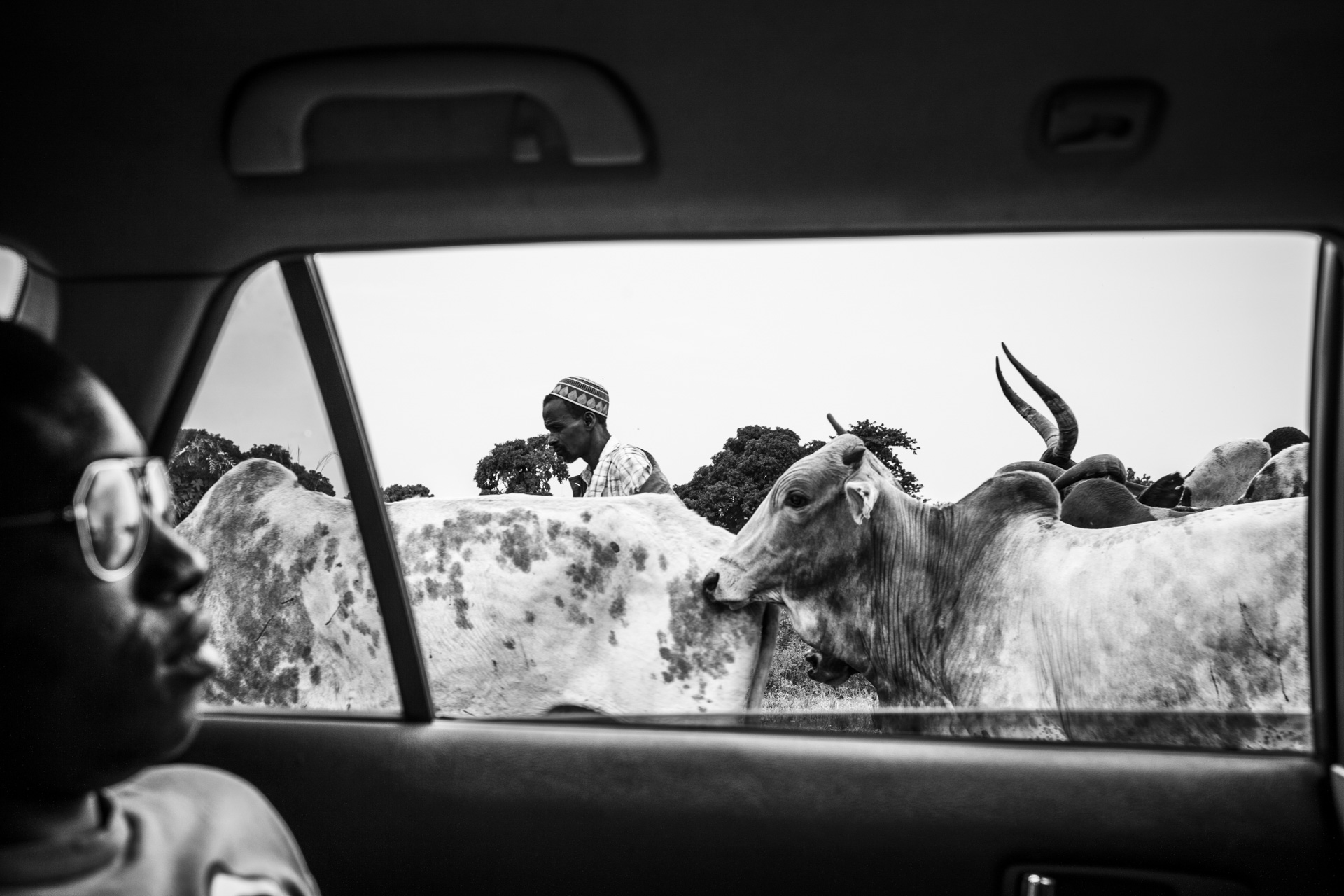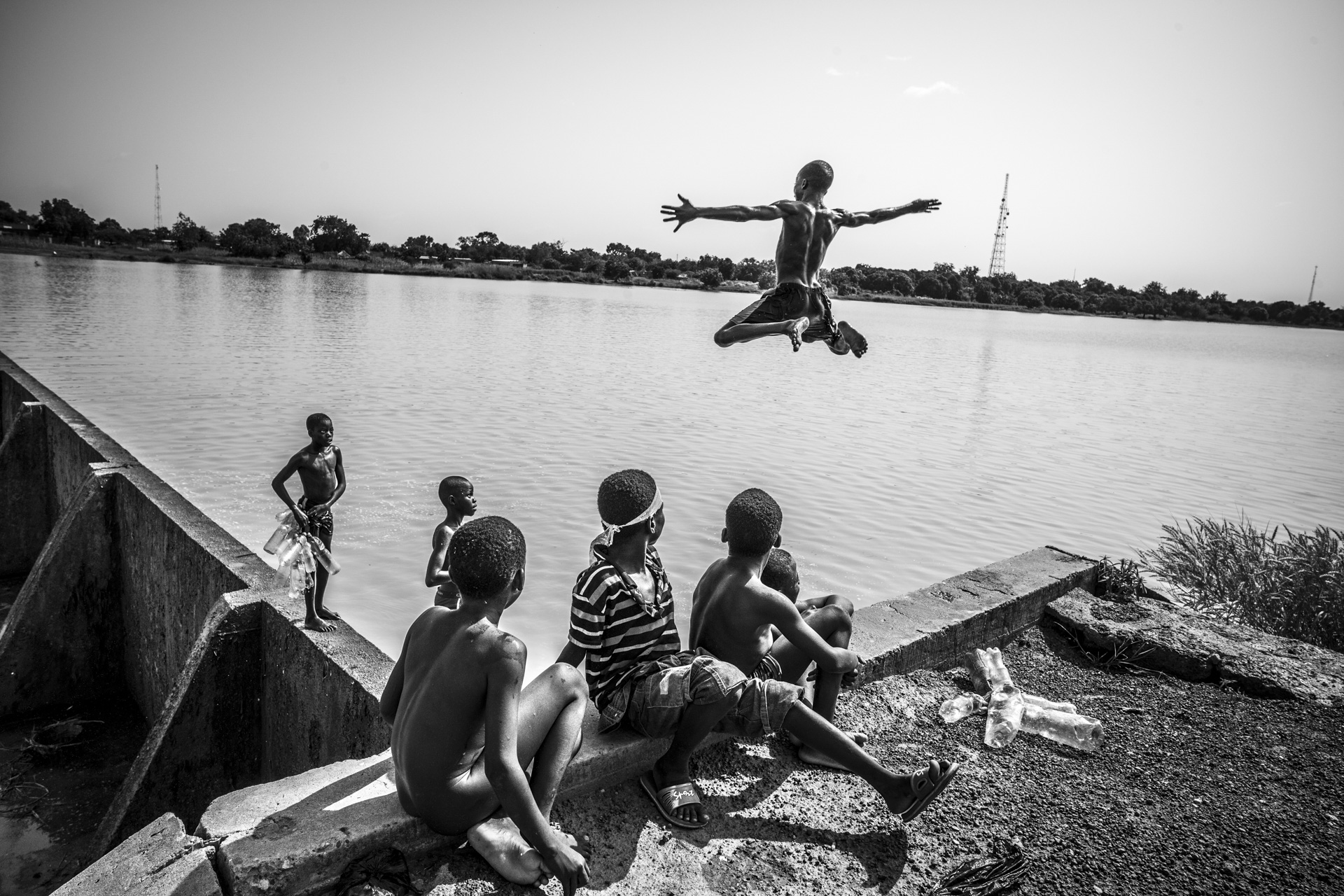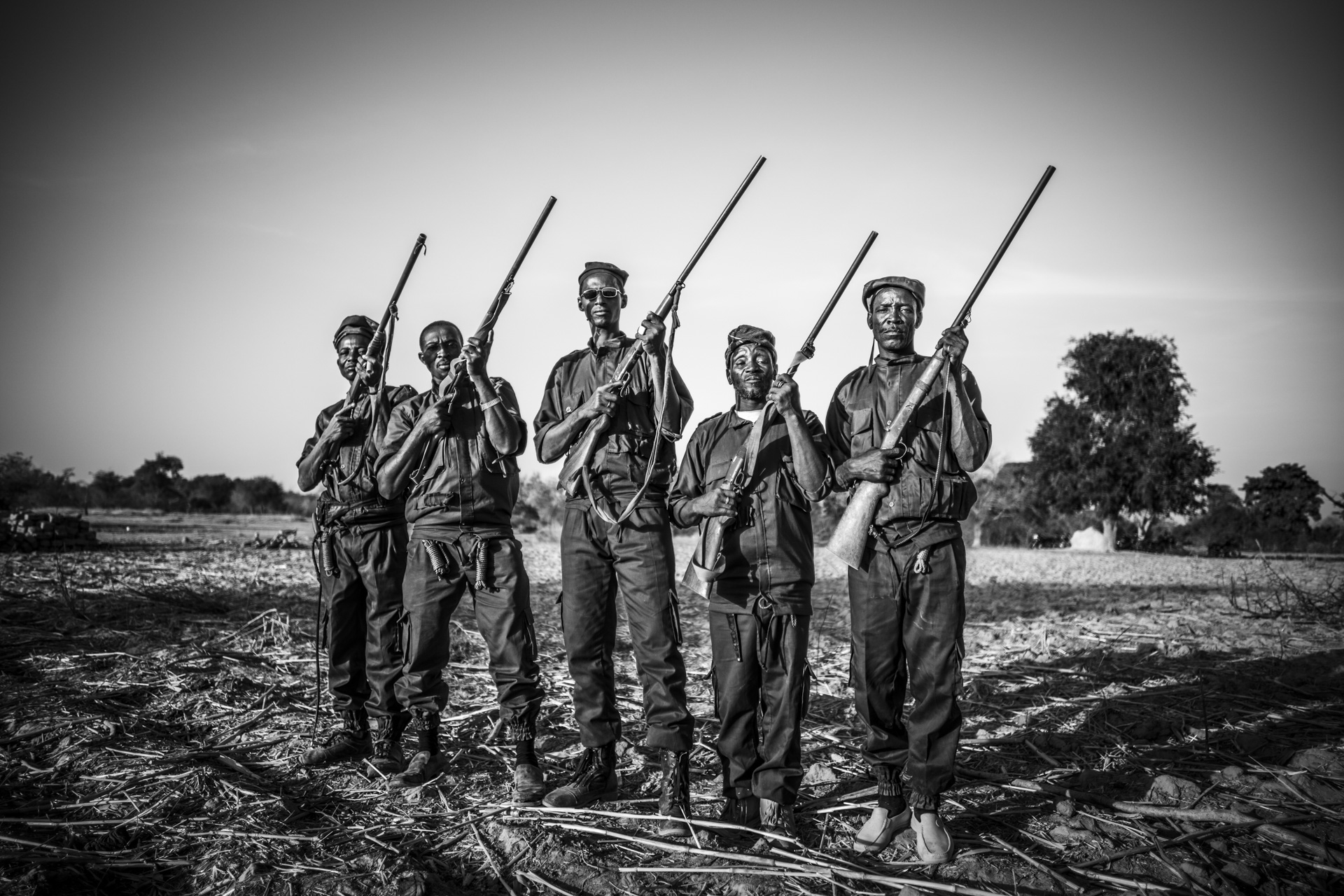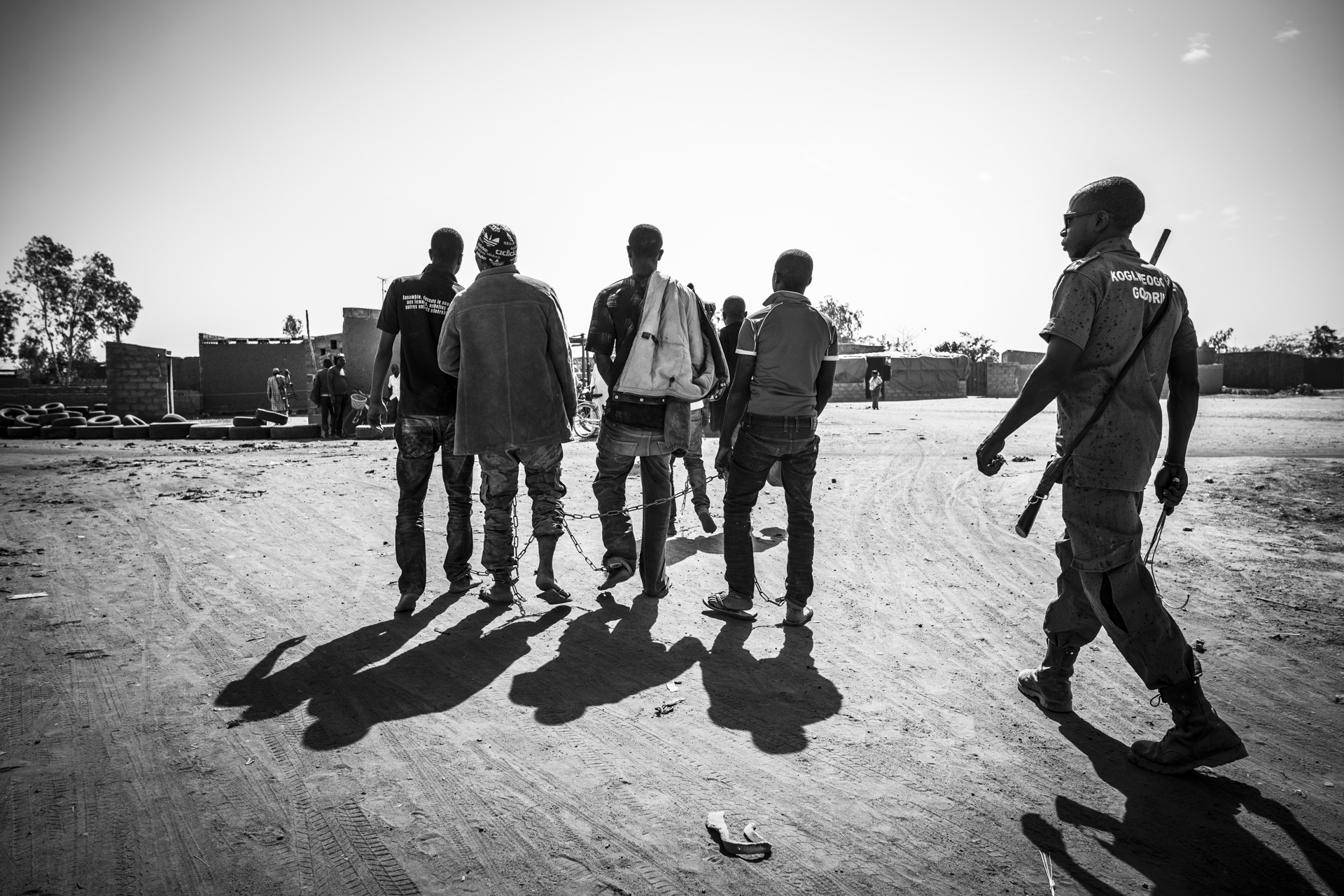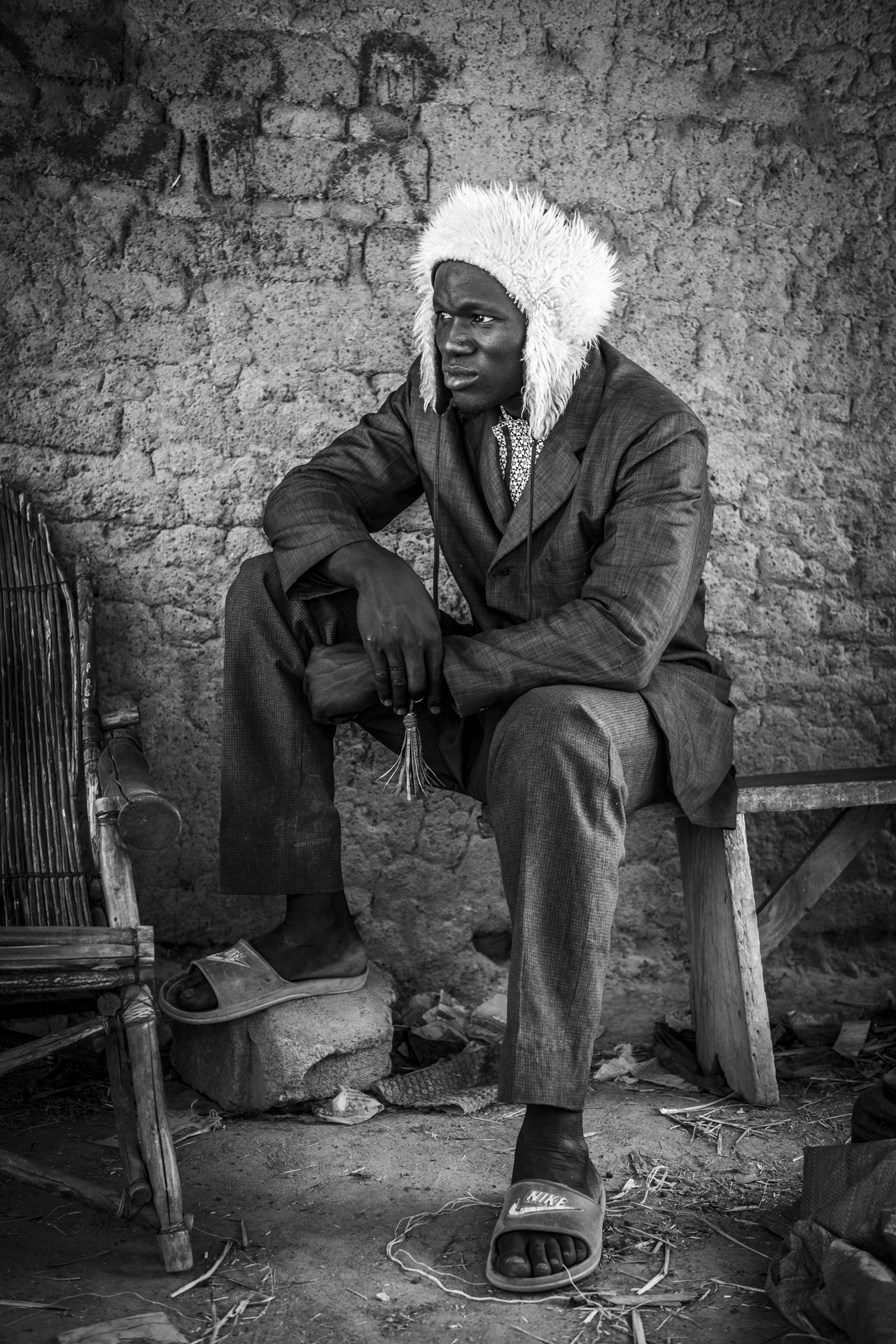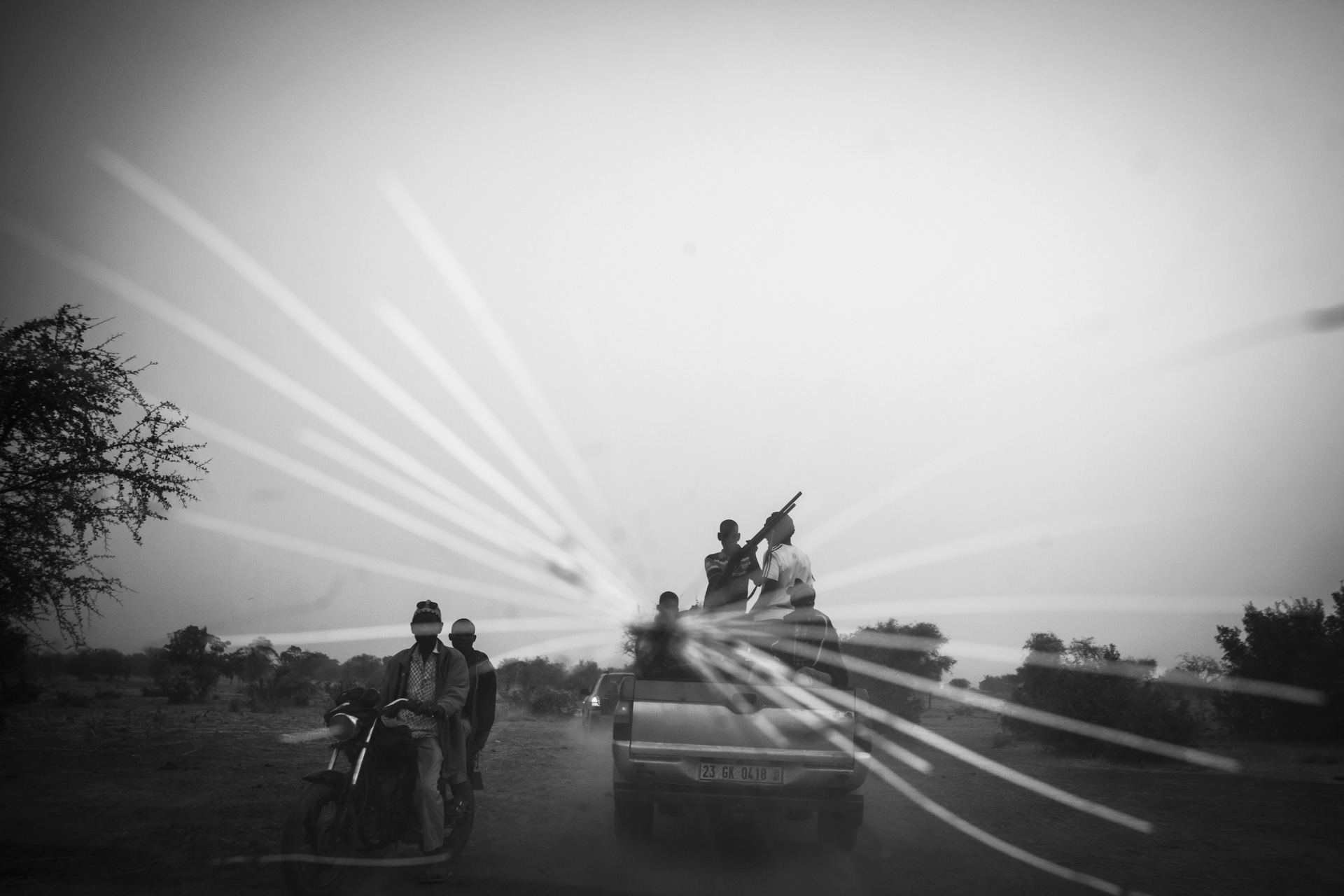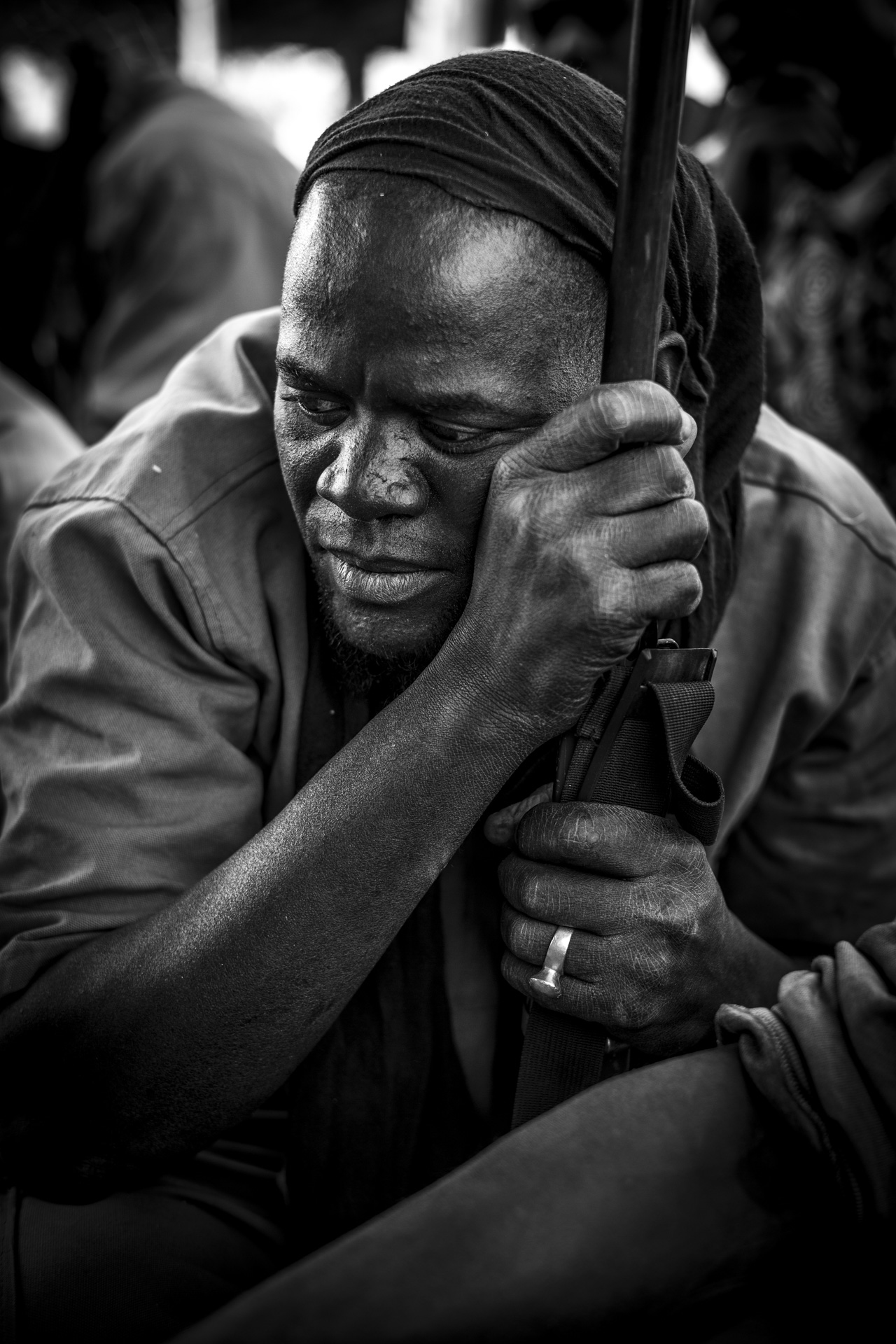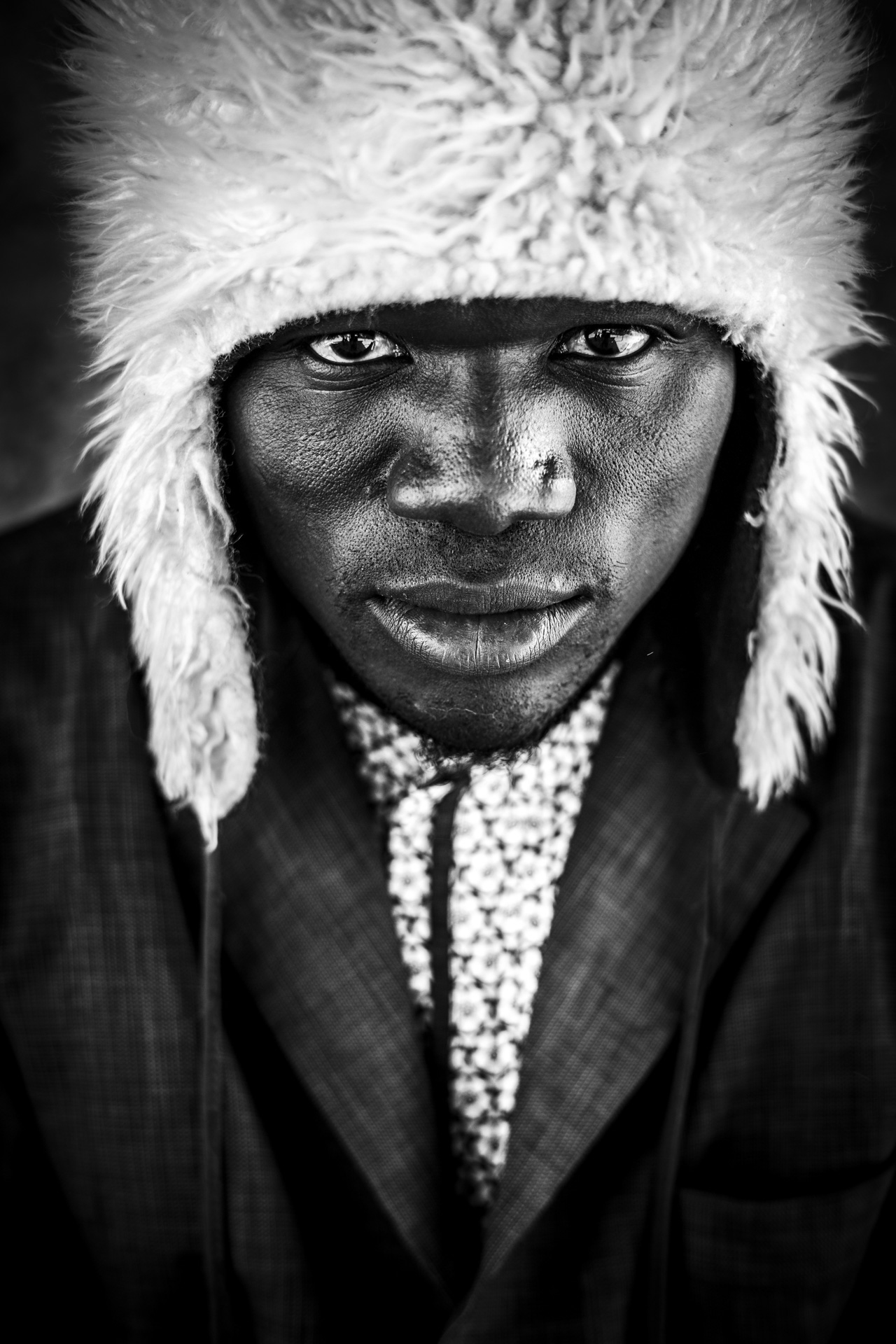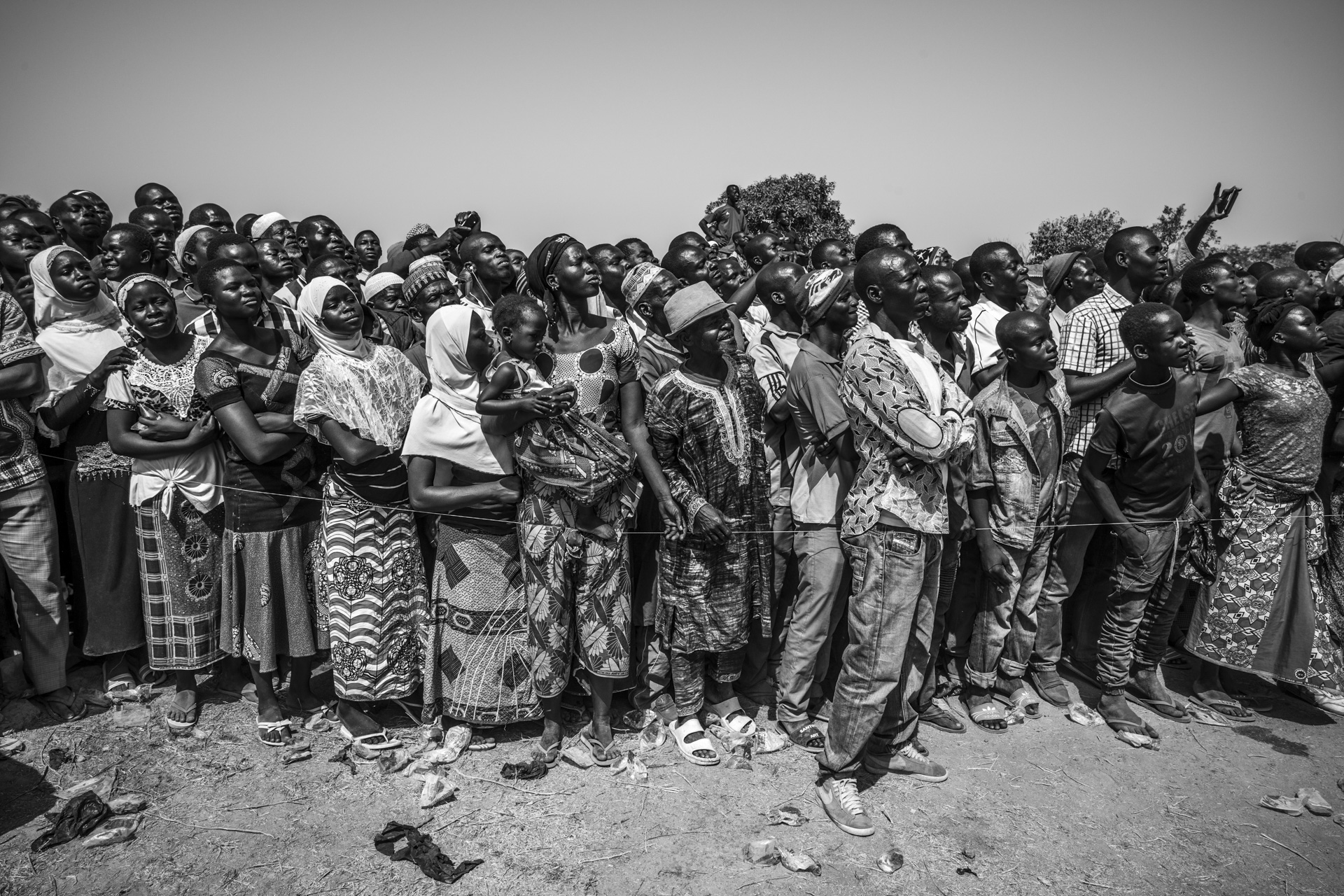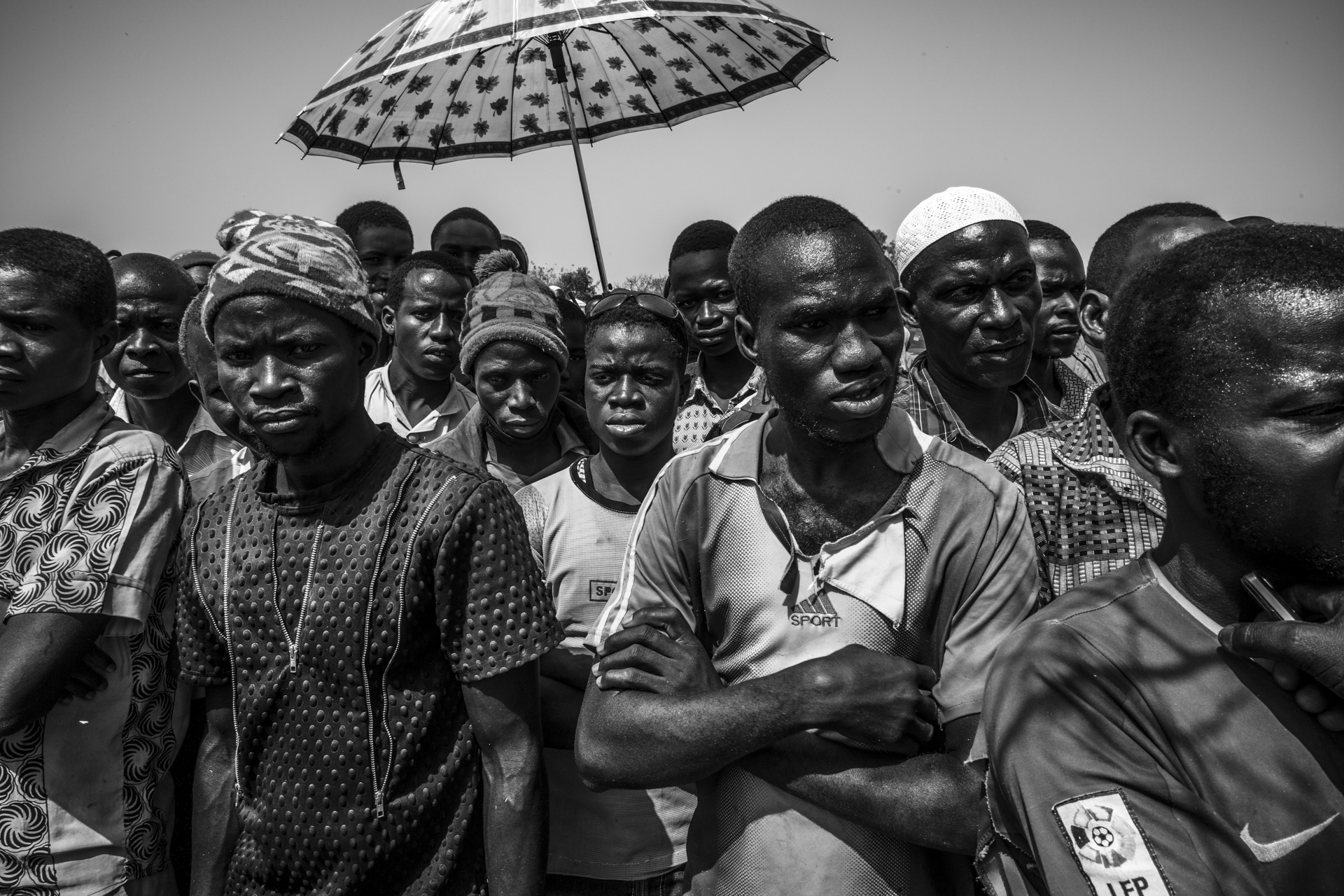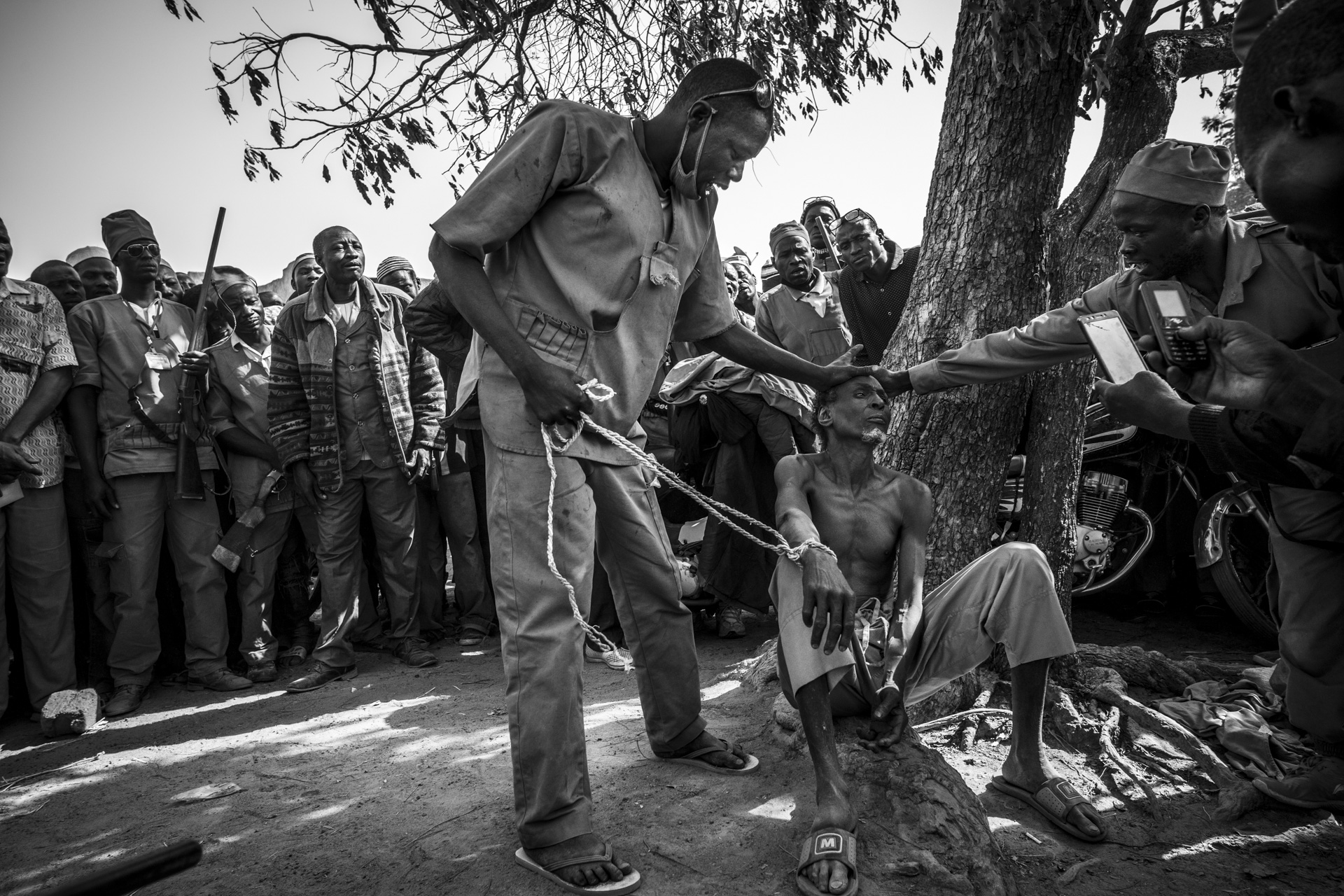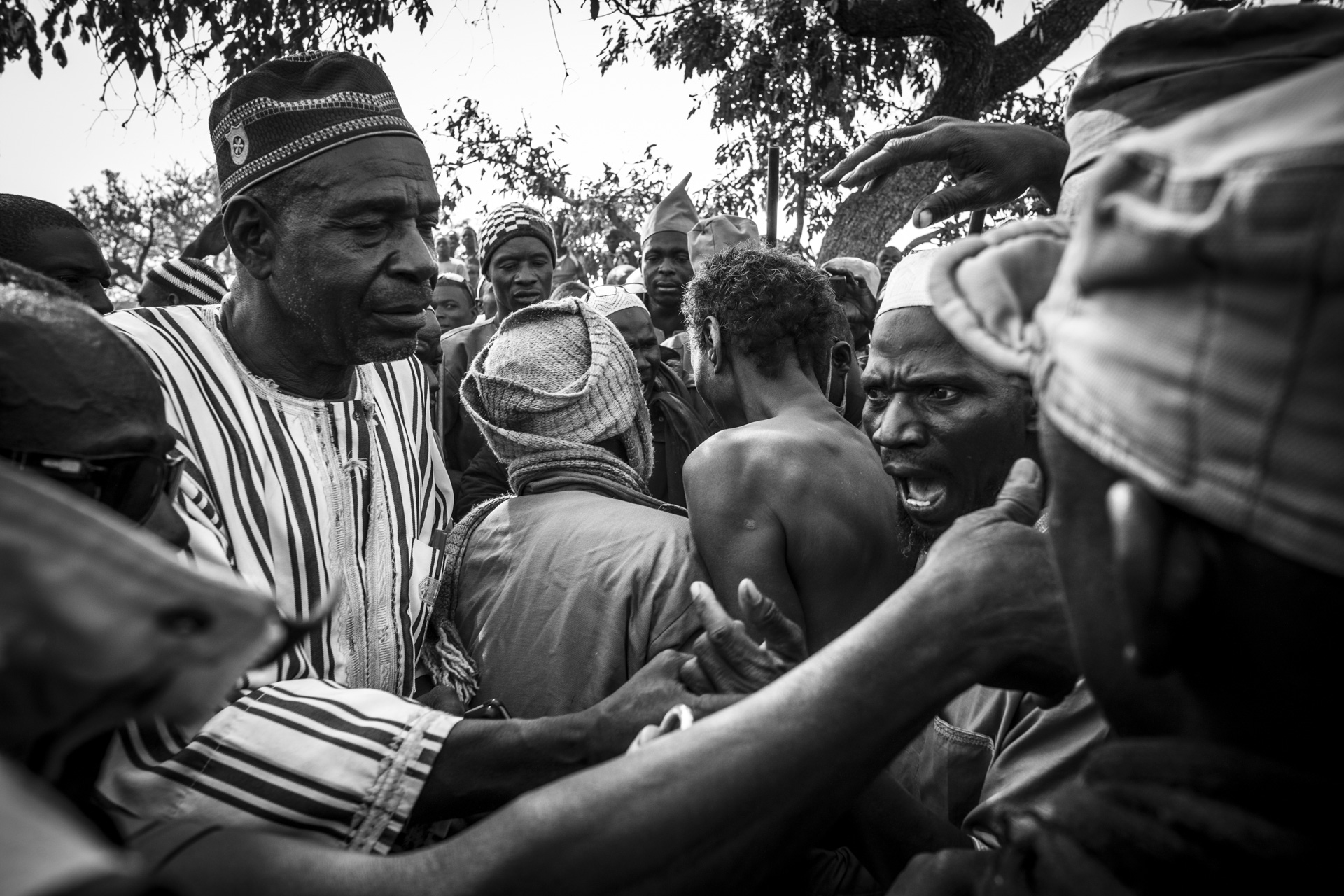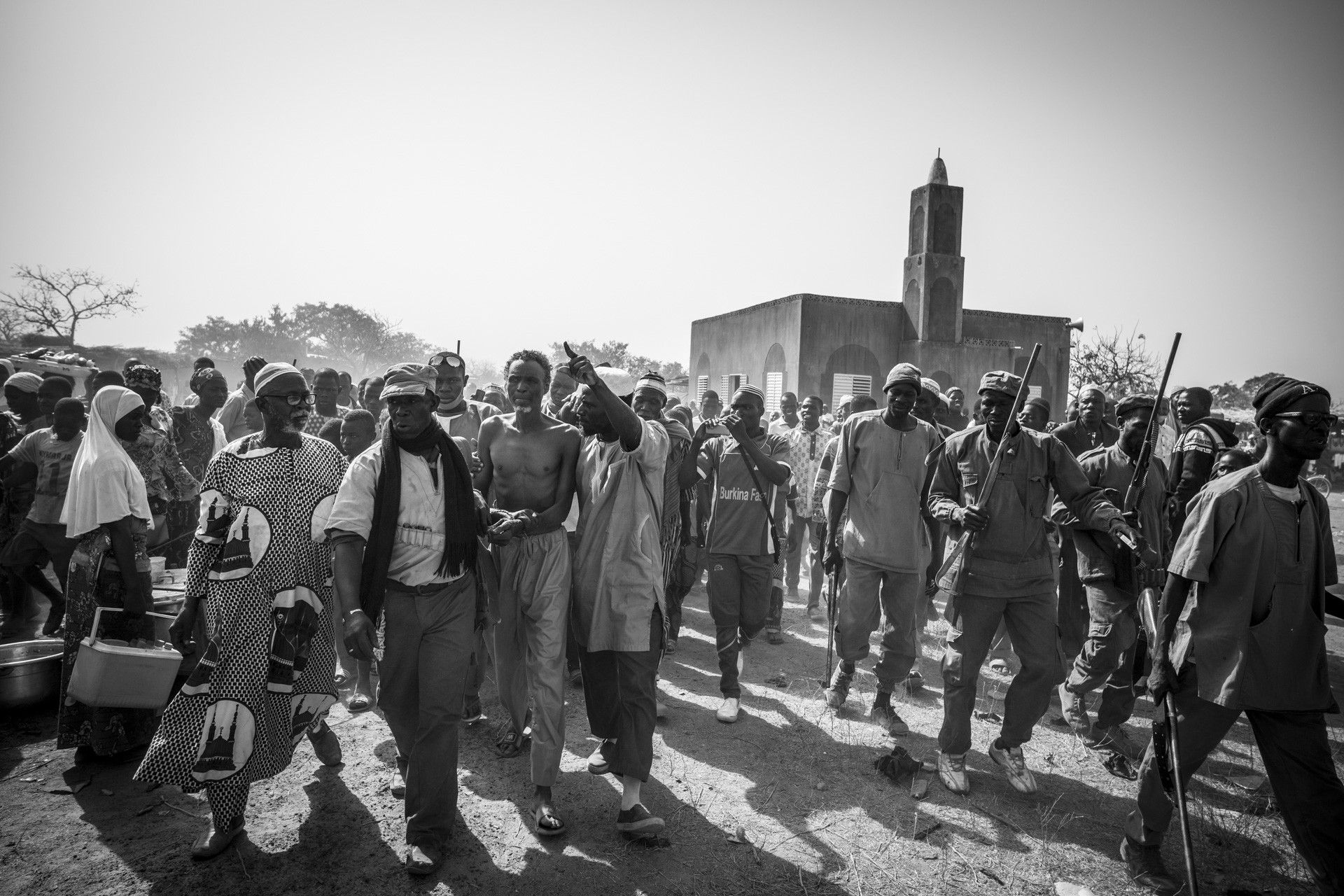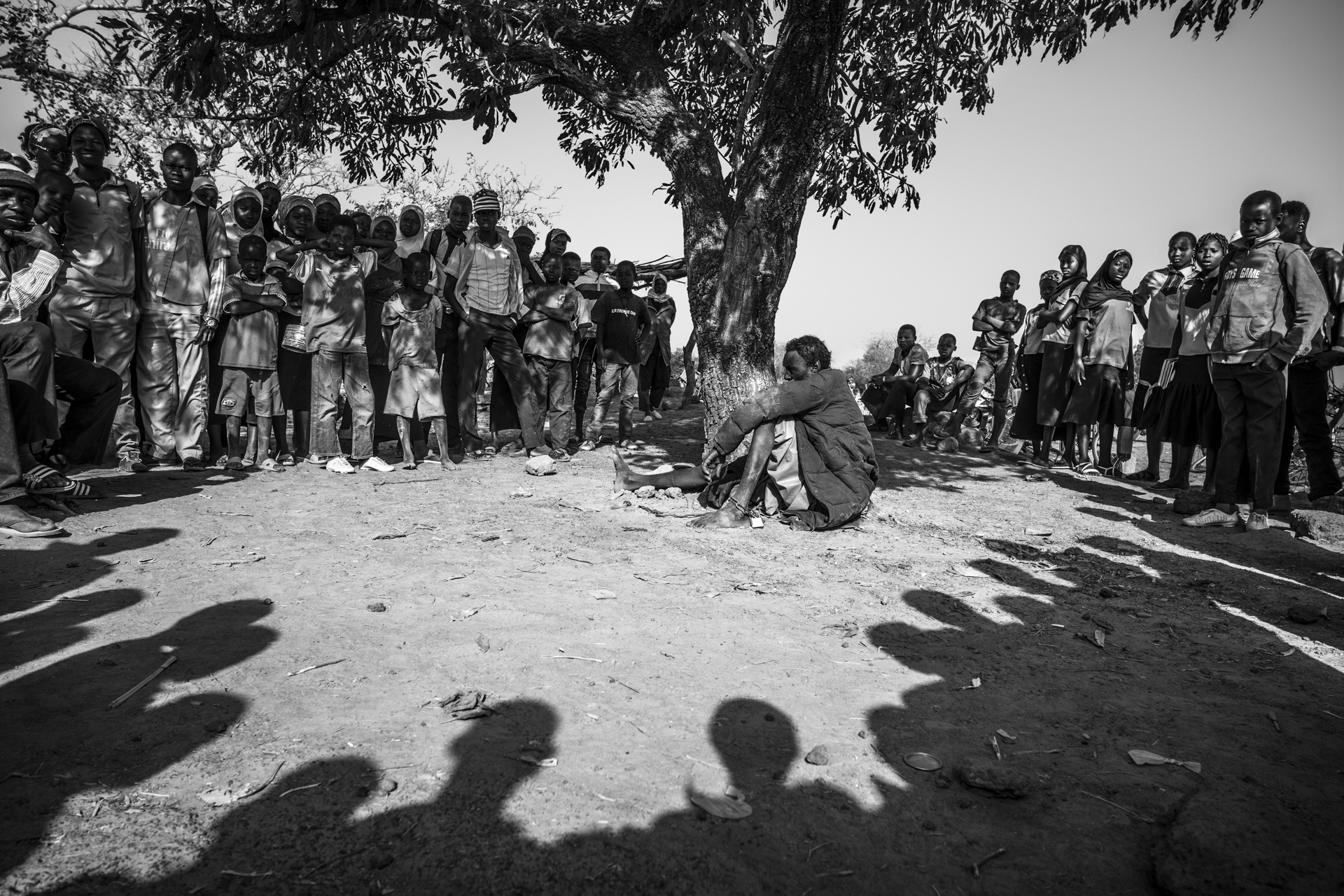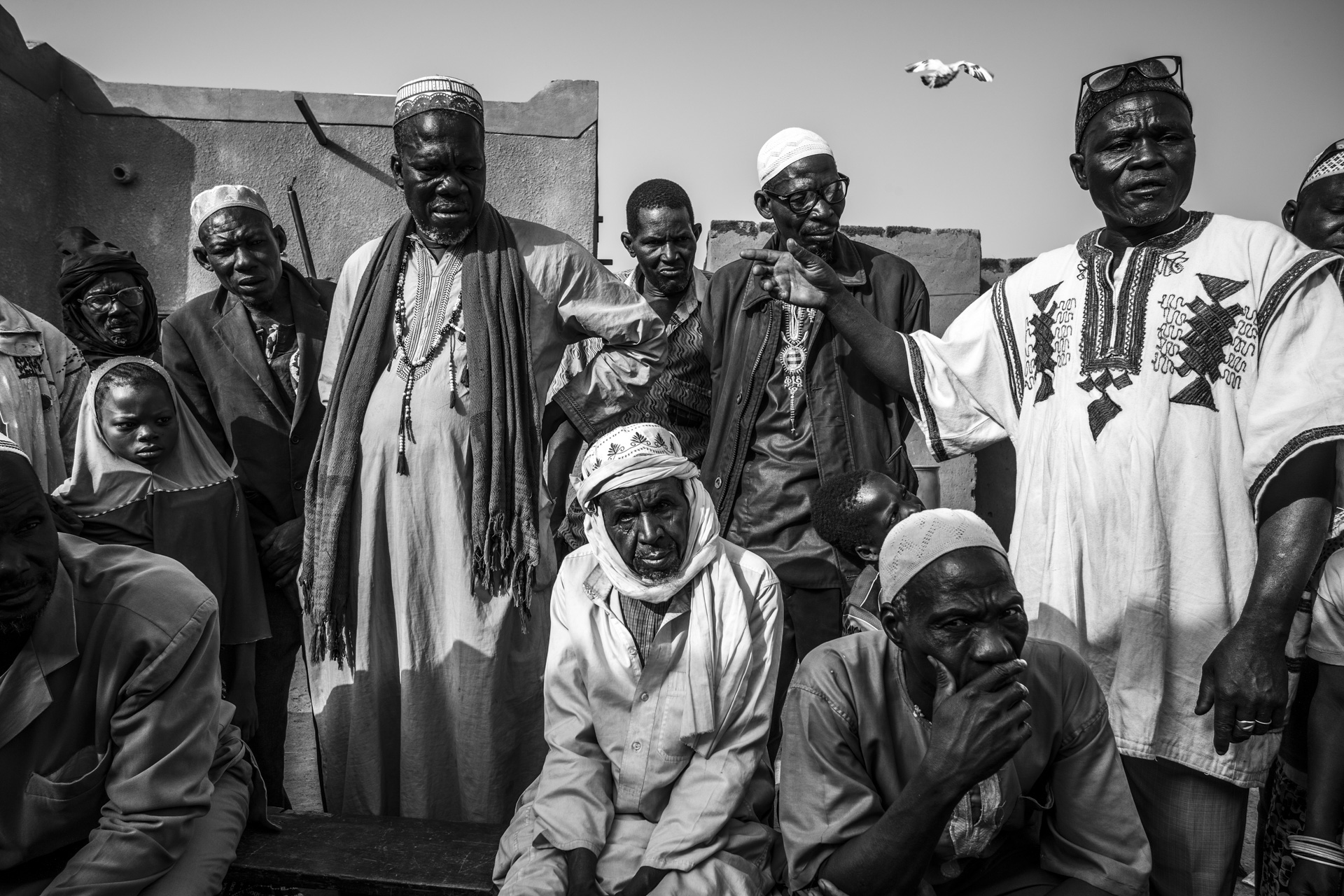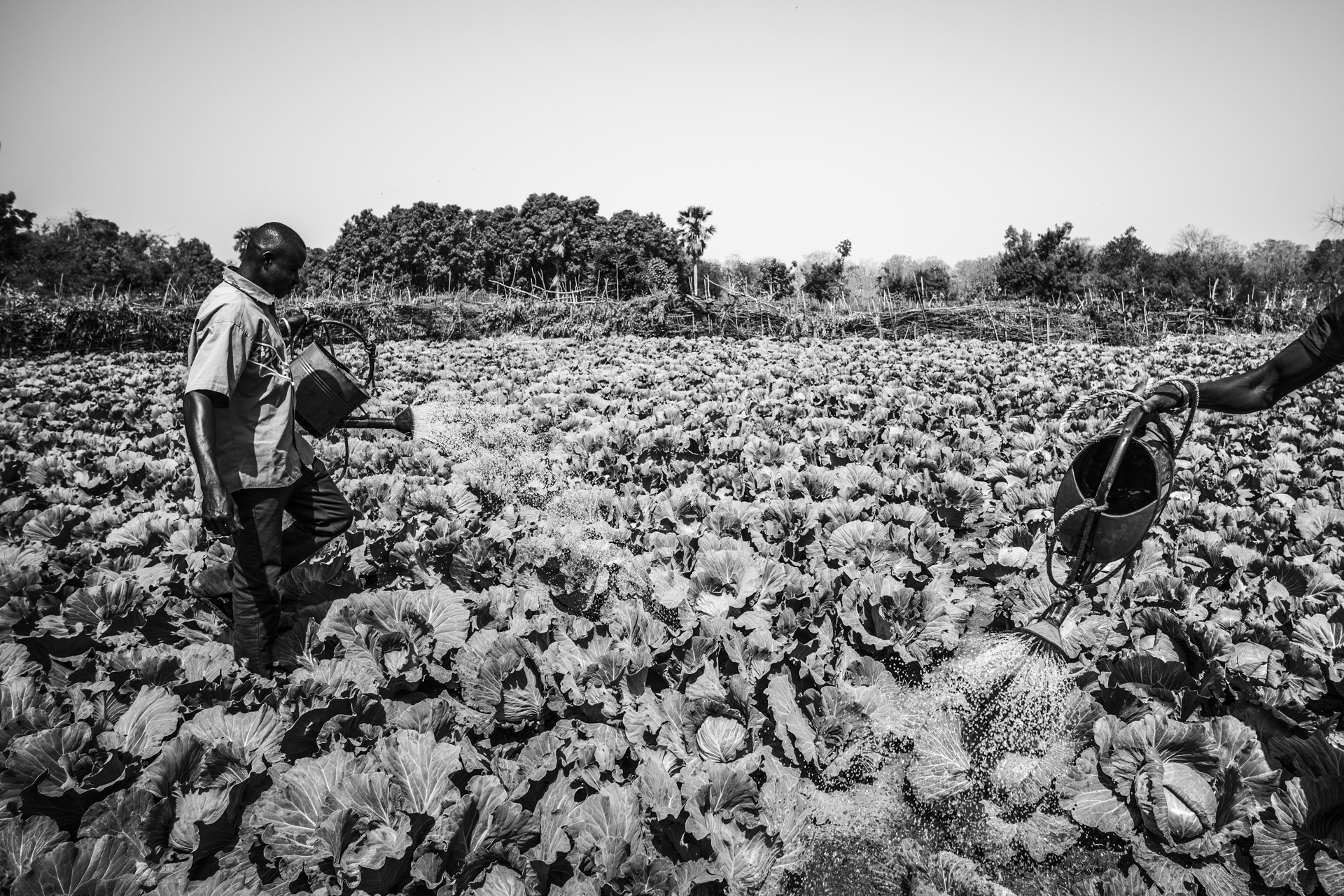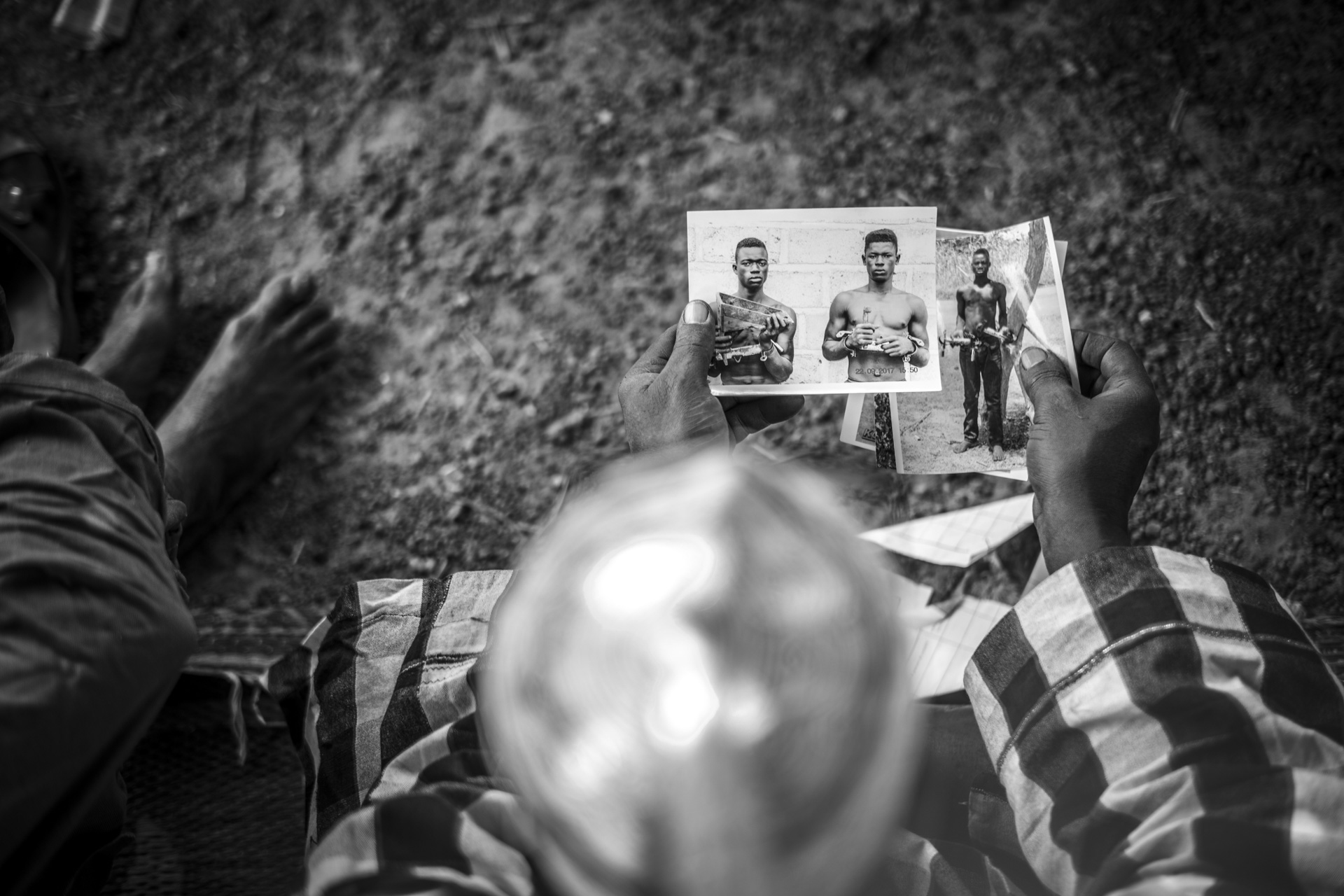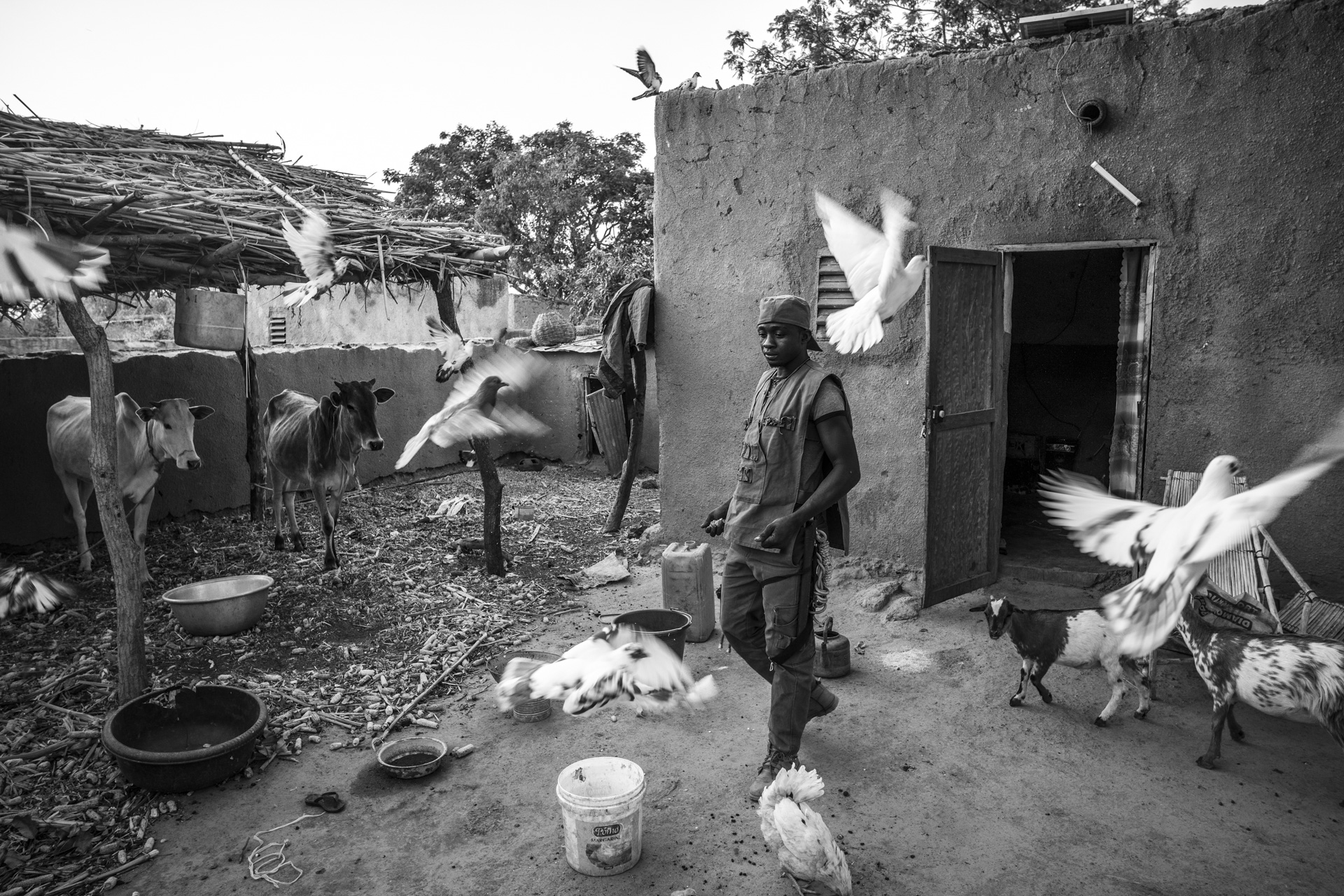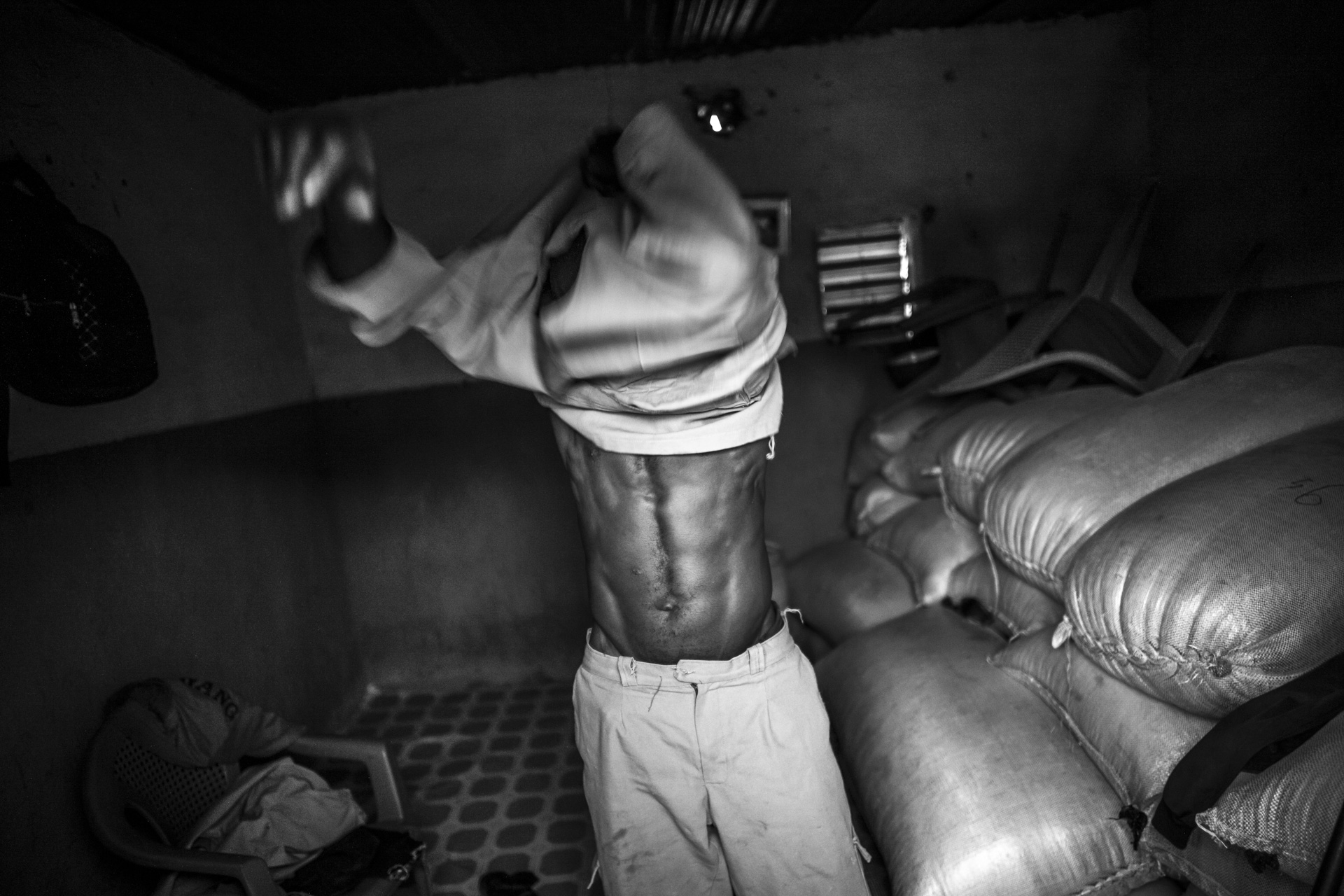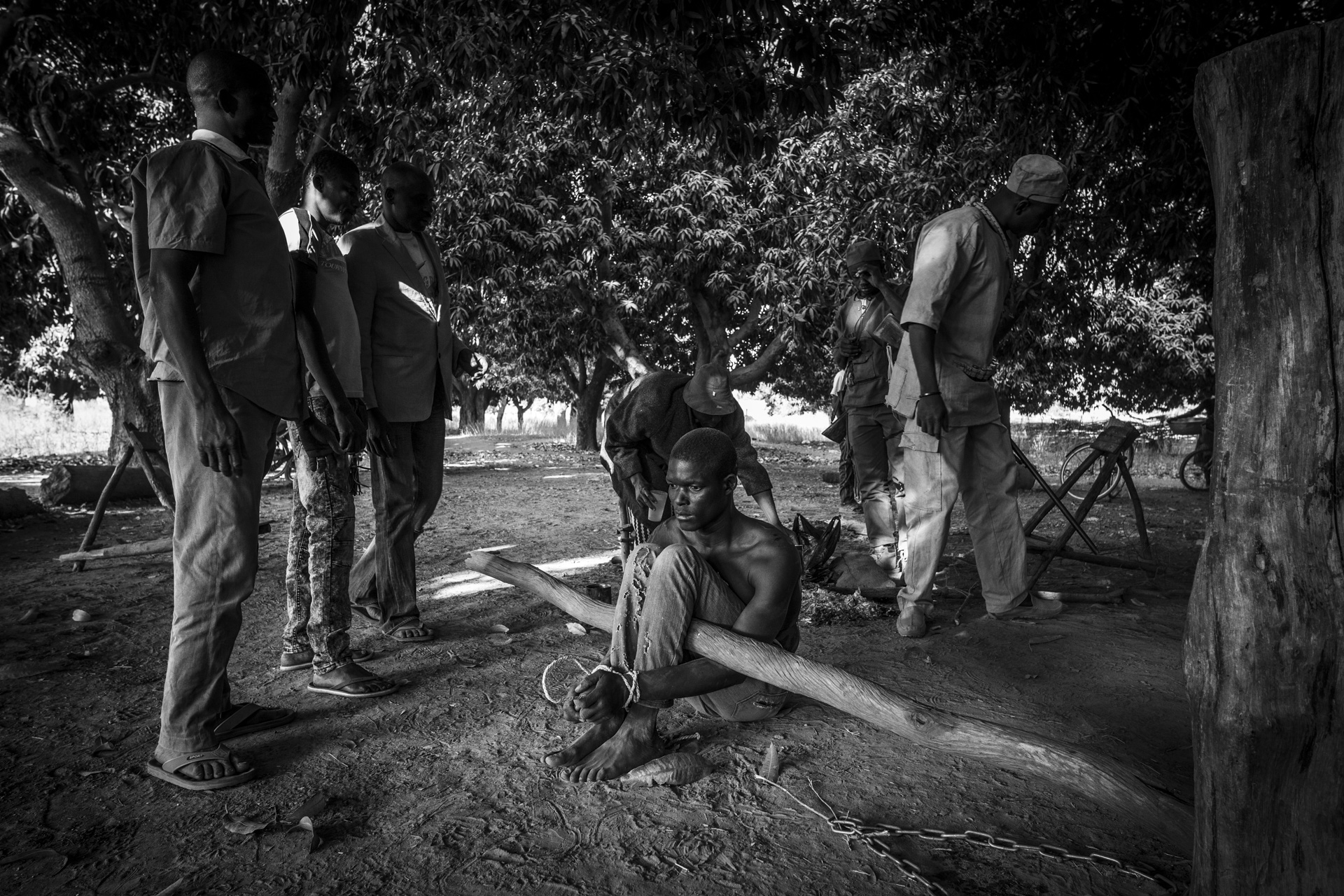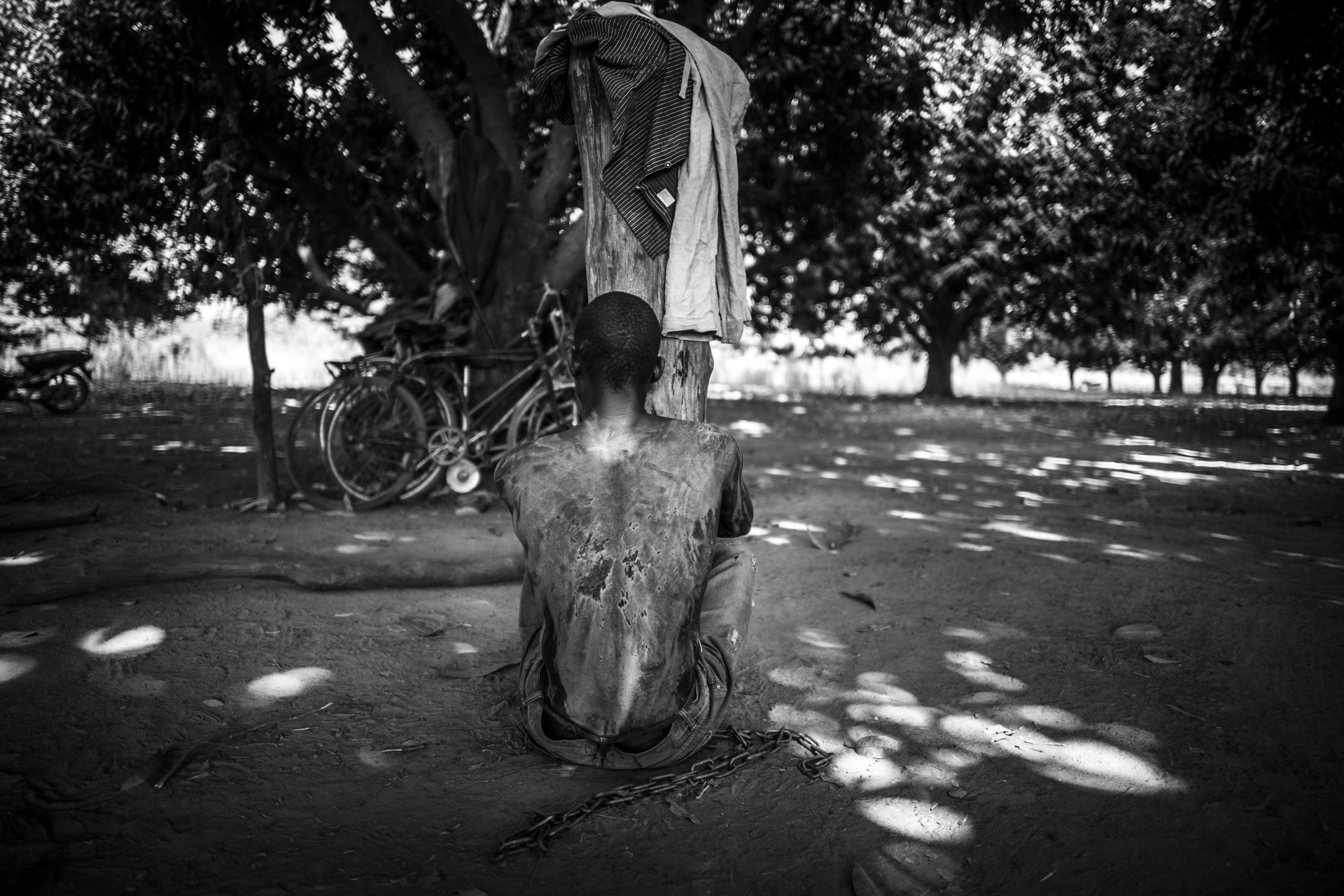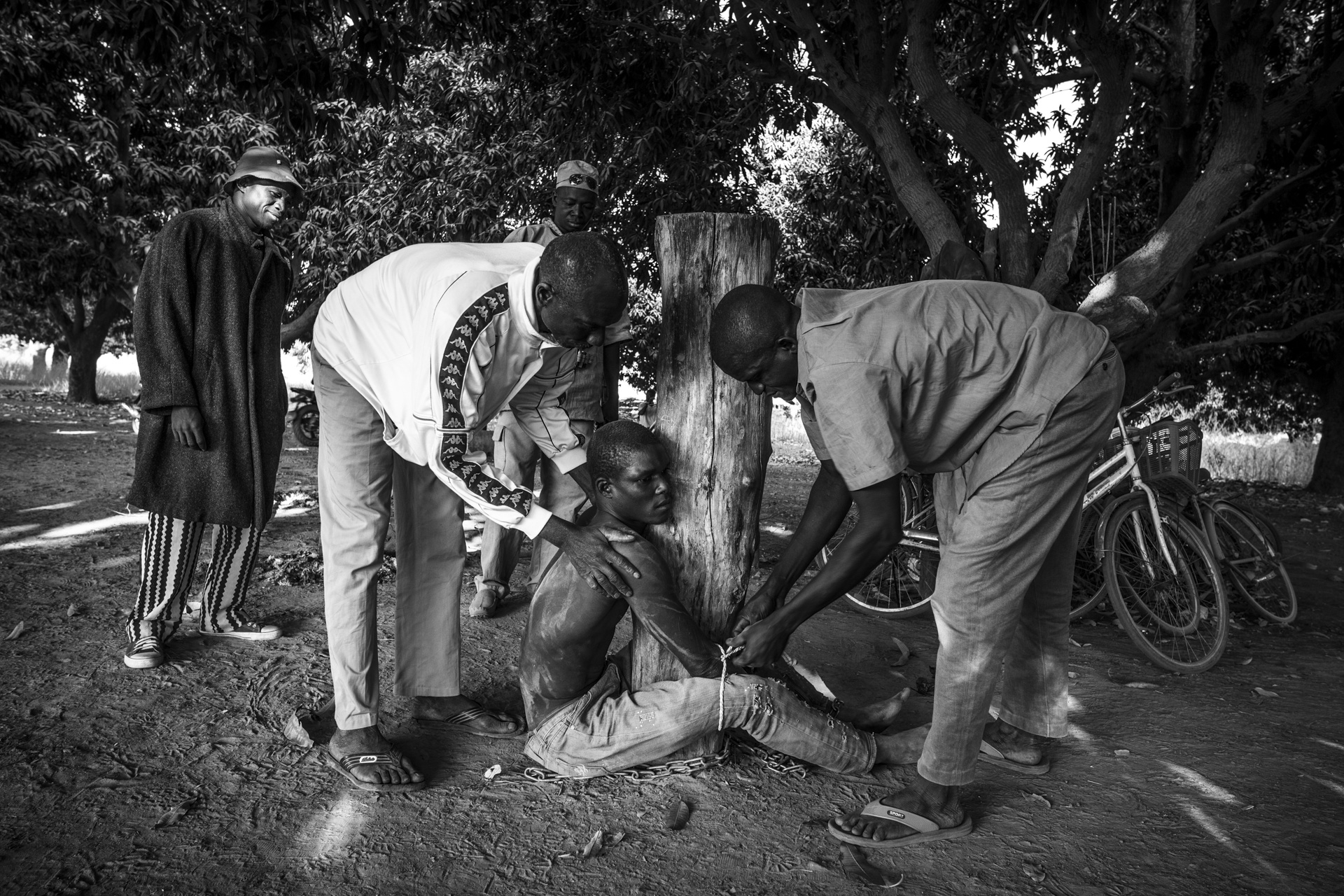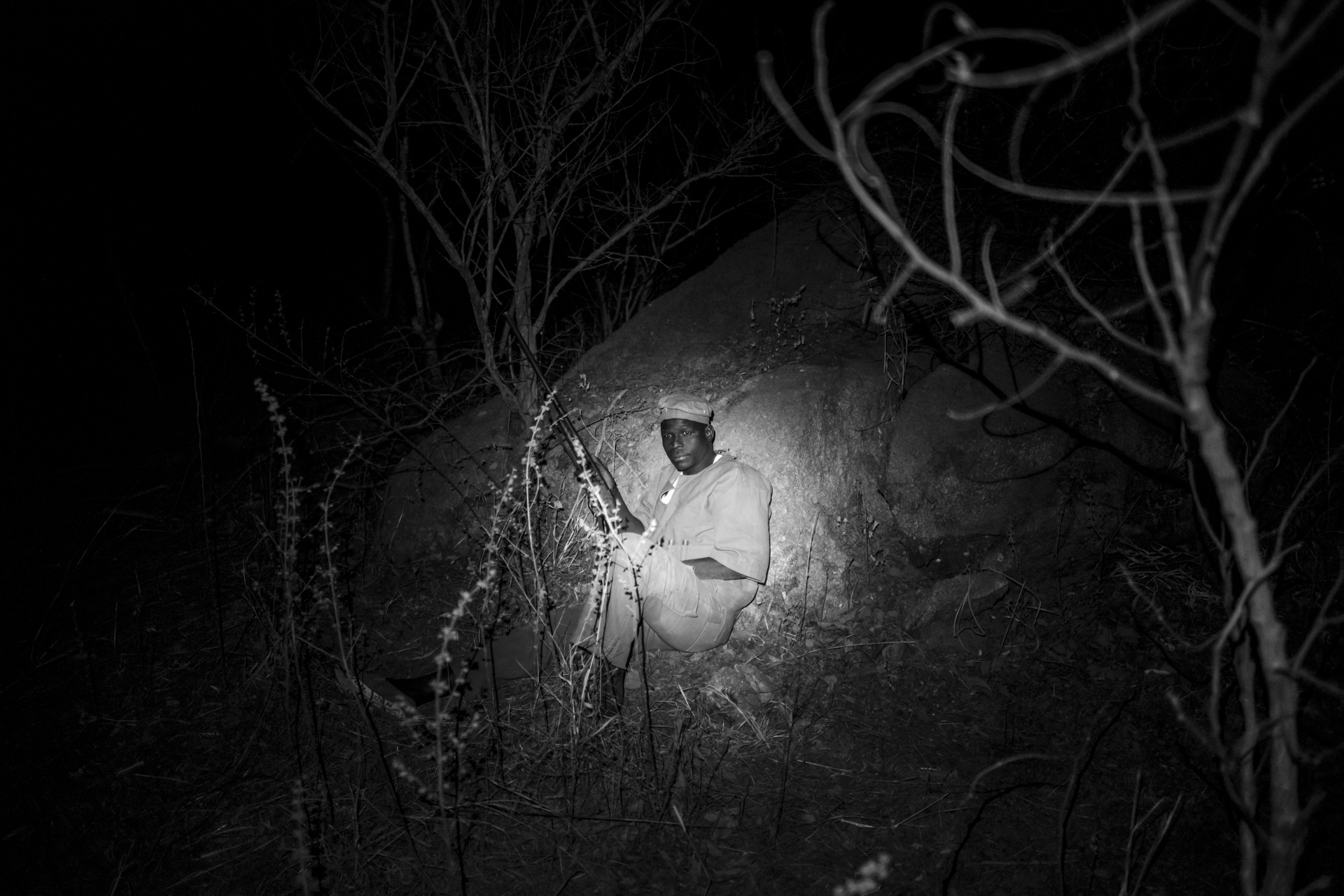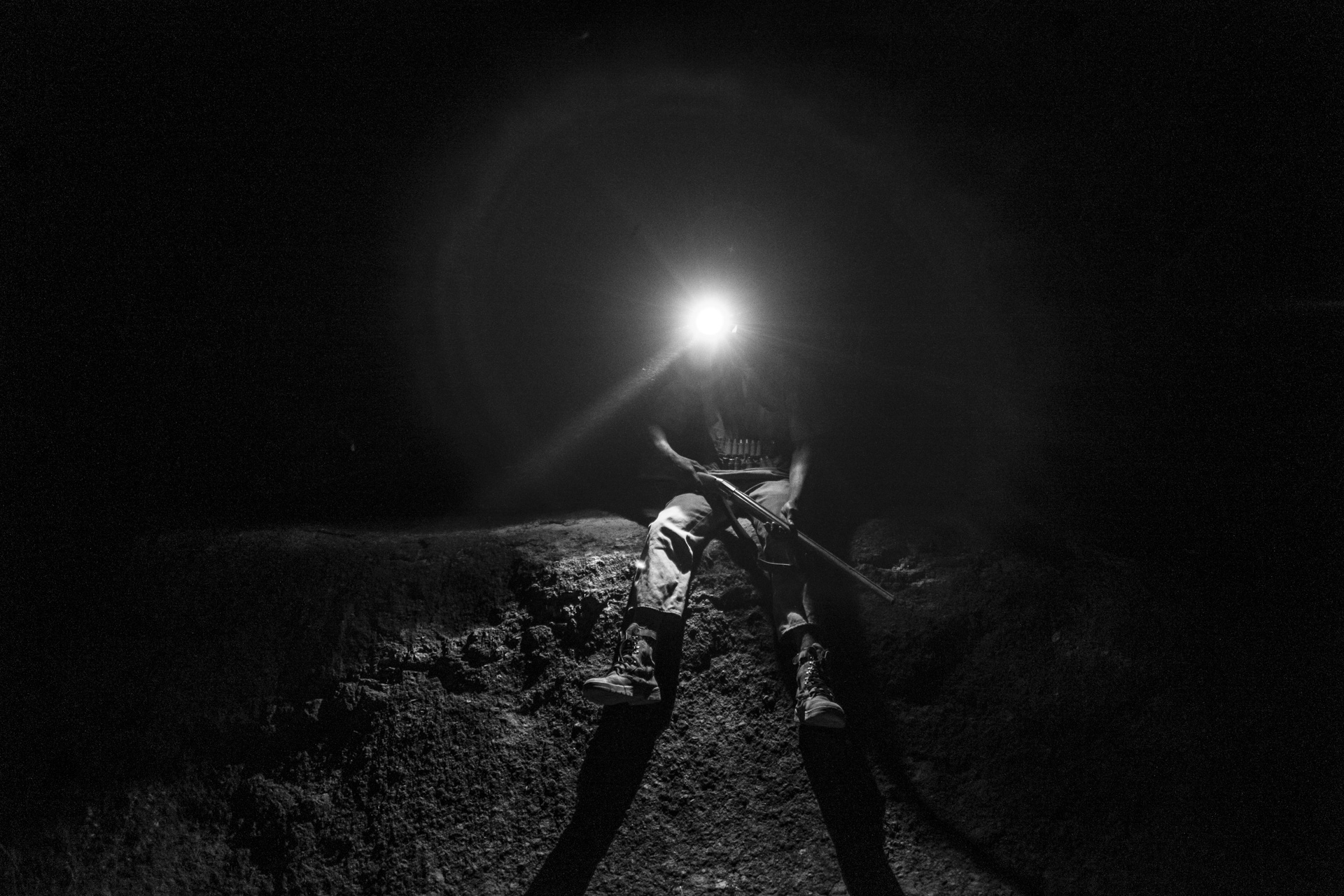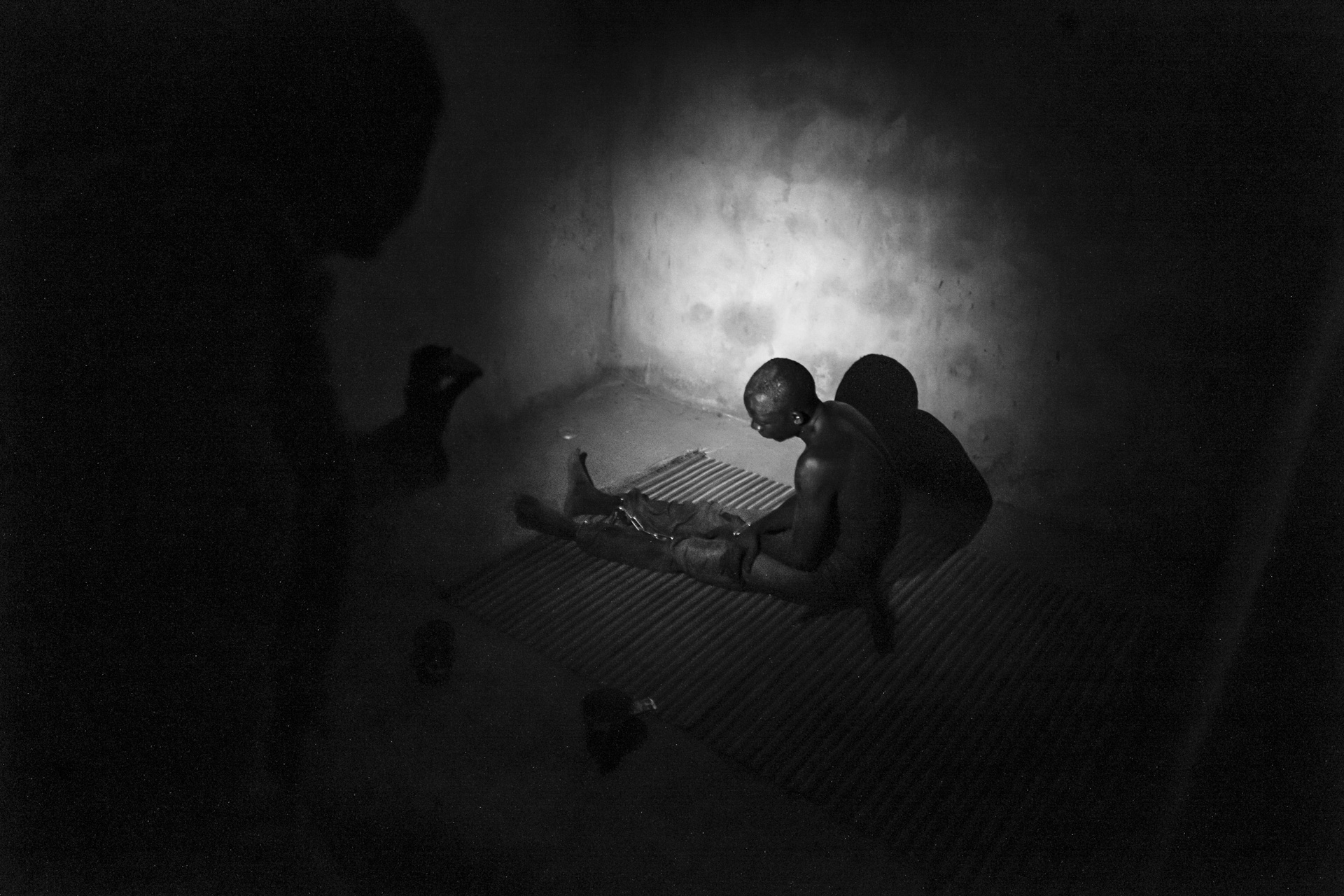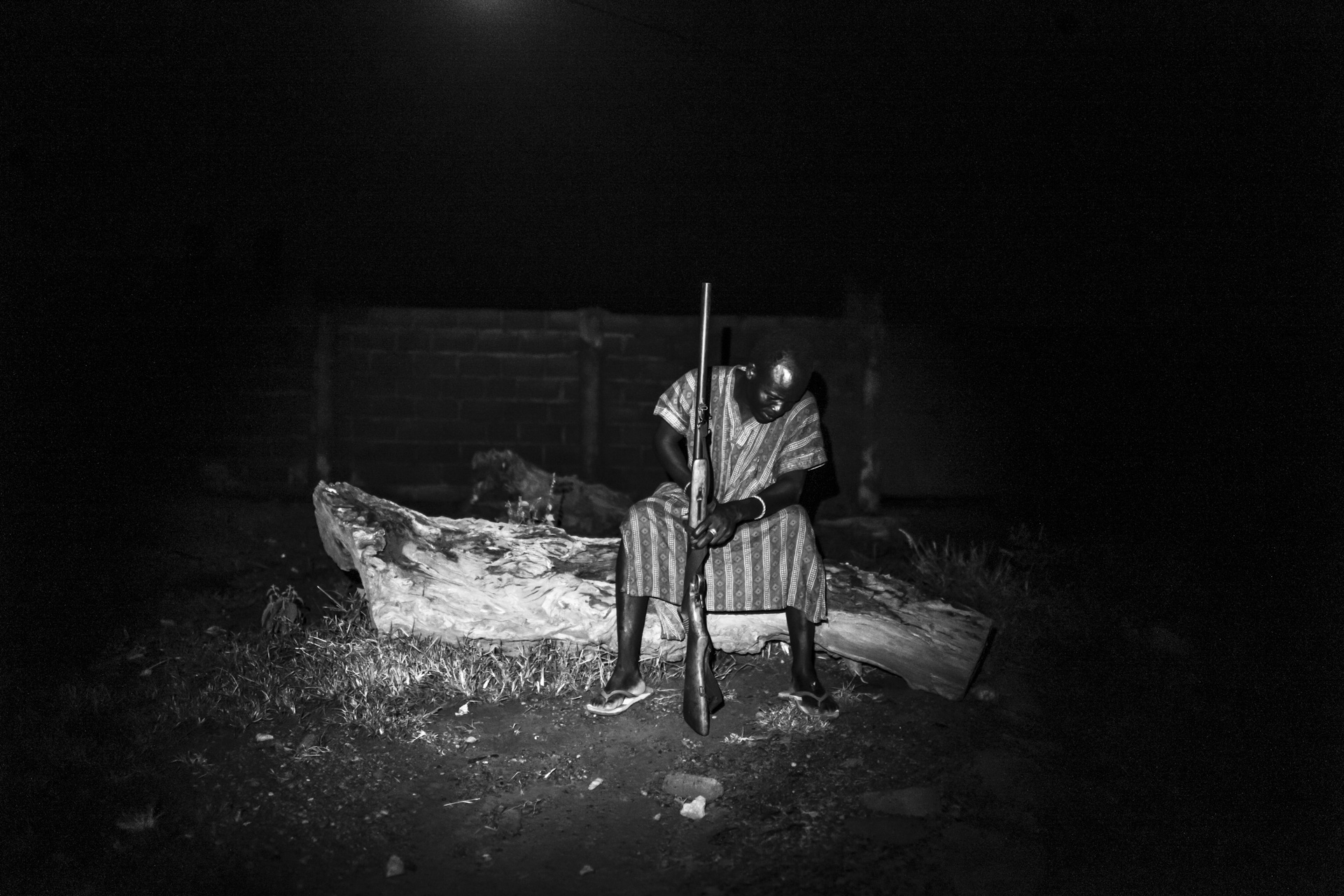Project made in Burkina Faso between March 2017 and February 2018. For the past 3 years, the « Koglweogo » have been spreading throughout Burkina Faso. Expression of the people, illustration of their exhaustion in the face of insecurity, these « Bush keepers » form a transversal movement throughout the society. Launched in the rural areas, these self-defense groups spread in the cities and in the vast majority of the country, including its capital, Ouagadougou. The movement unifies beyond social groups and religious beliefs, claim their membres. A union in adversity as the population, once victim of hold ups, organized crime both local and international-, rapists, thieves, decided to take the responsibility of its own security and the protection of its own goods.
By doing so, the 4400 associations of citizens aim at fighting injustice and a corrupted justice apparatus, political elites and police officers. They call themselves actors of peace, defenders of the common good. Supported by the population -who went back to more serene and peaceful daily lives- the Koglweogo’s efficiency is acknowledged by all. « Does the end justify the means ? », asks a member of the judicial system.
By getting their hands on the renforcement chain, the Koglweogo arrogate the roles of policemen, righters of wrongs and executioners, punishing at the end of popular trials, by fines, physical abuses and acts of humiliation. By these crackdowns, they are guilty of breaking the law. Human rights defenders and members of the judicial system have been blowing the whistle. They denounce a group expending everyday that could become out of control and jeopardize the rule of law. It is nevertheless important to acknowledge the fact that the Koglweogo did not spread to the West. Attempts to do so led to violent clashes between pro and anti Koglweogo.
Politicians are uptight between a movement that they cannot openly contest -The Koglweogo benefit from a large popularity-, and the need to protect the rule of law. But the country’s fragile stability could be threatened, especially if these armed groups, today, apolitical and under the patronage of the traditional leaders, were to claim political leadership.
The topic, deeply rooted in the country’s culture, does not limit to its security issues and could not forgo its political, social and territorial ramifications.
Immersion in the world of the Koglweogo, self-defense groups that became as indispensable as controversial.
Text : © Valentine Van Vyve
